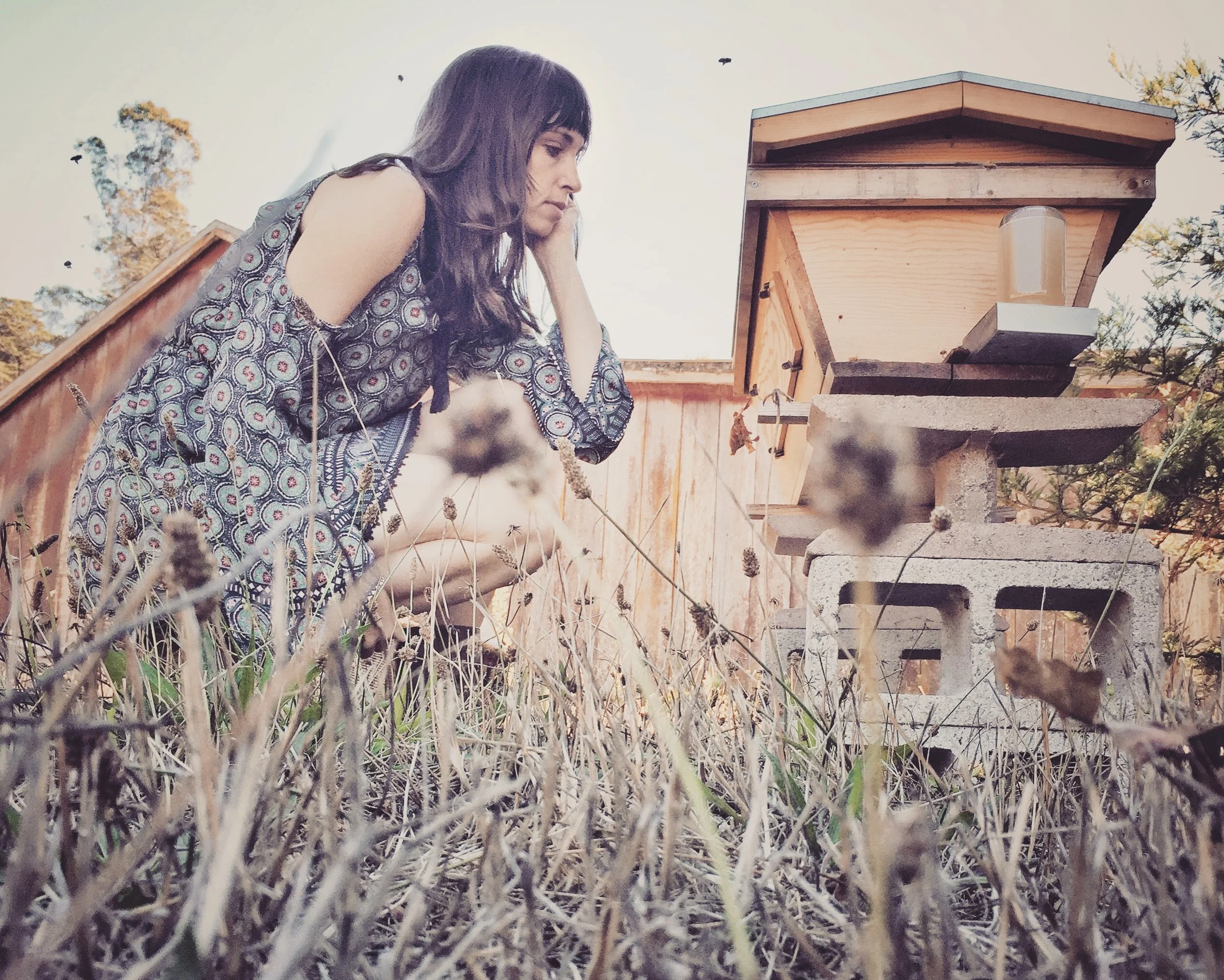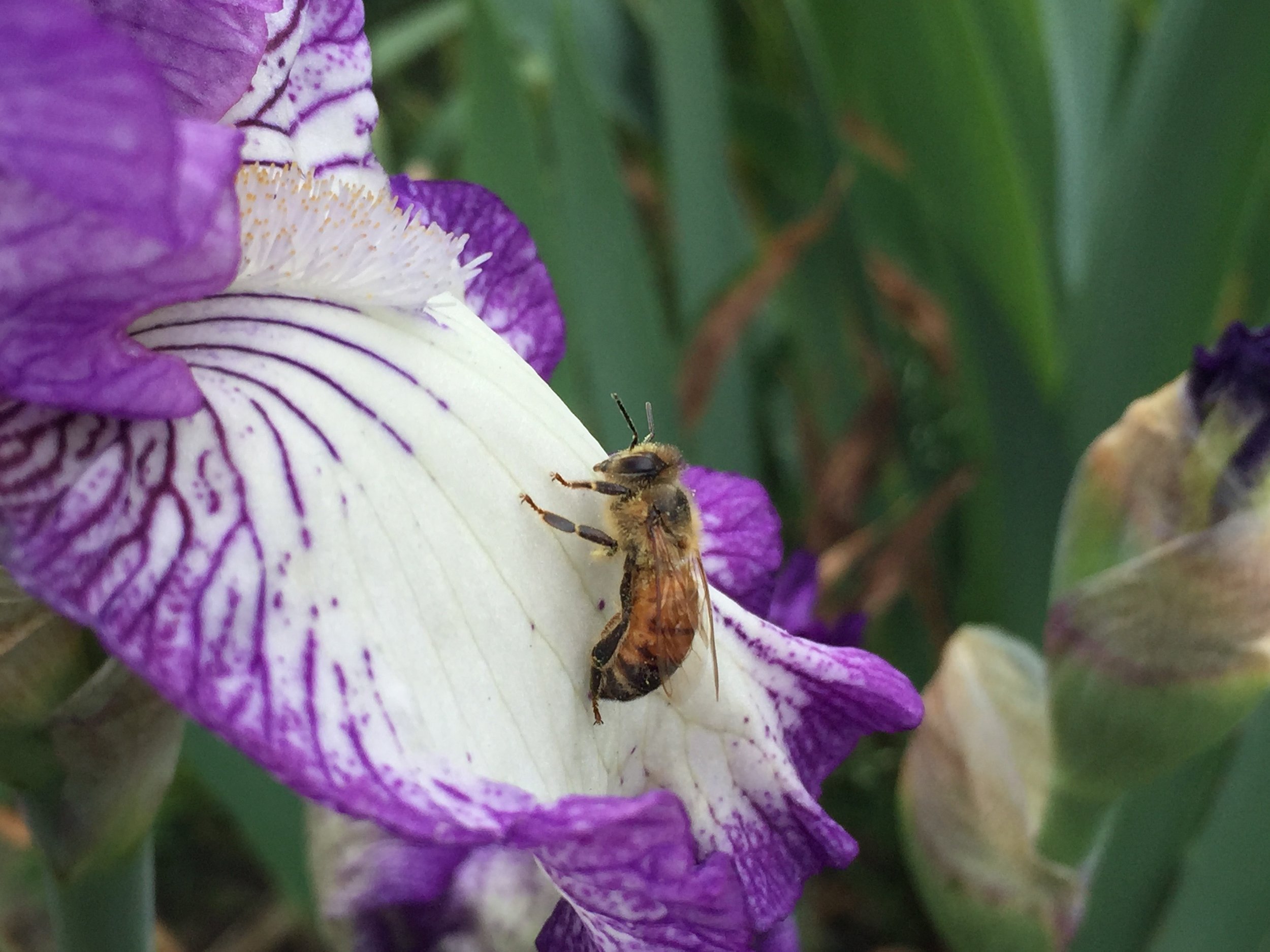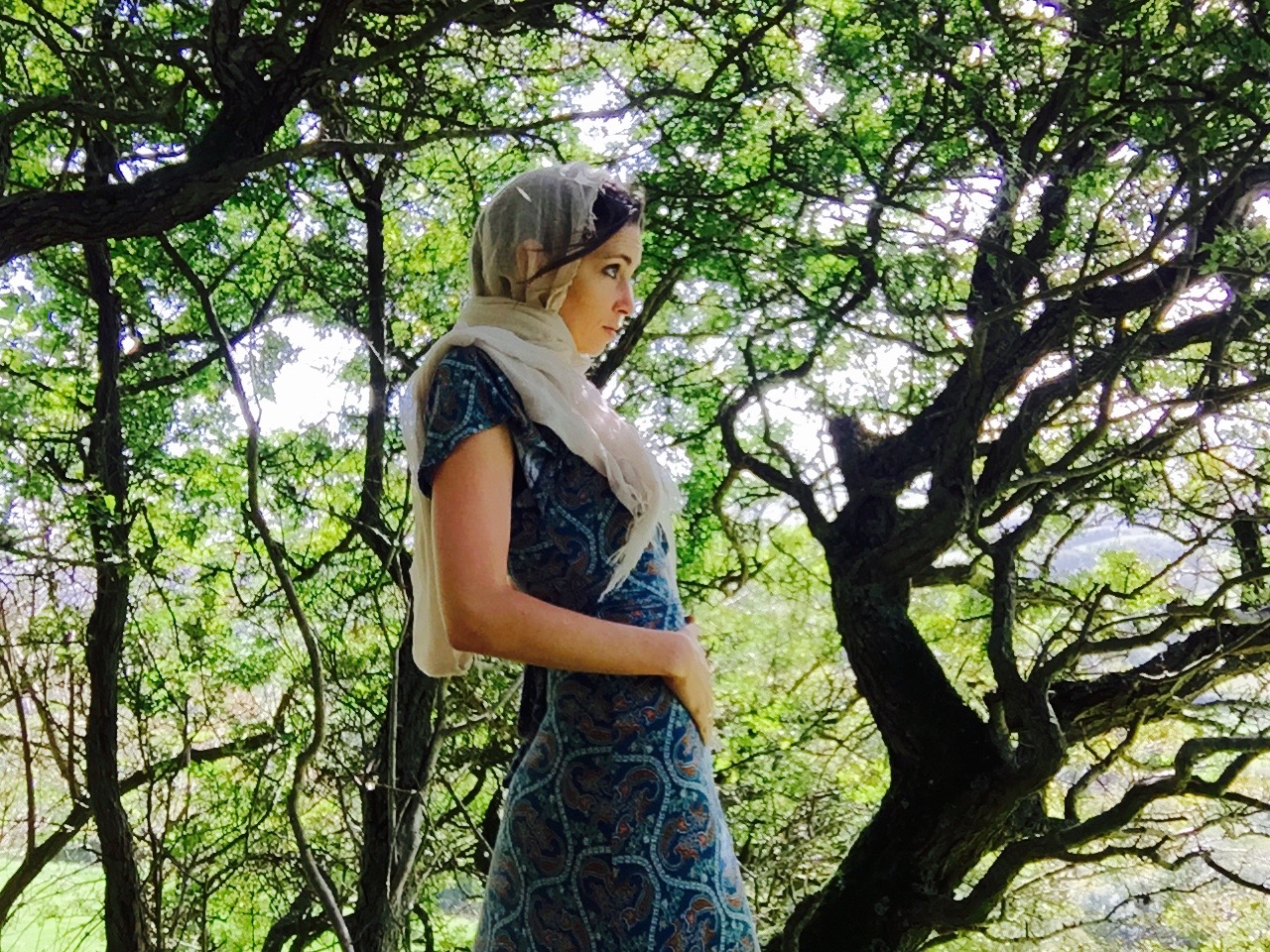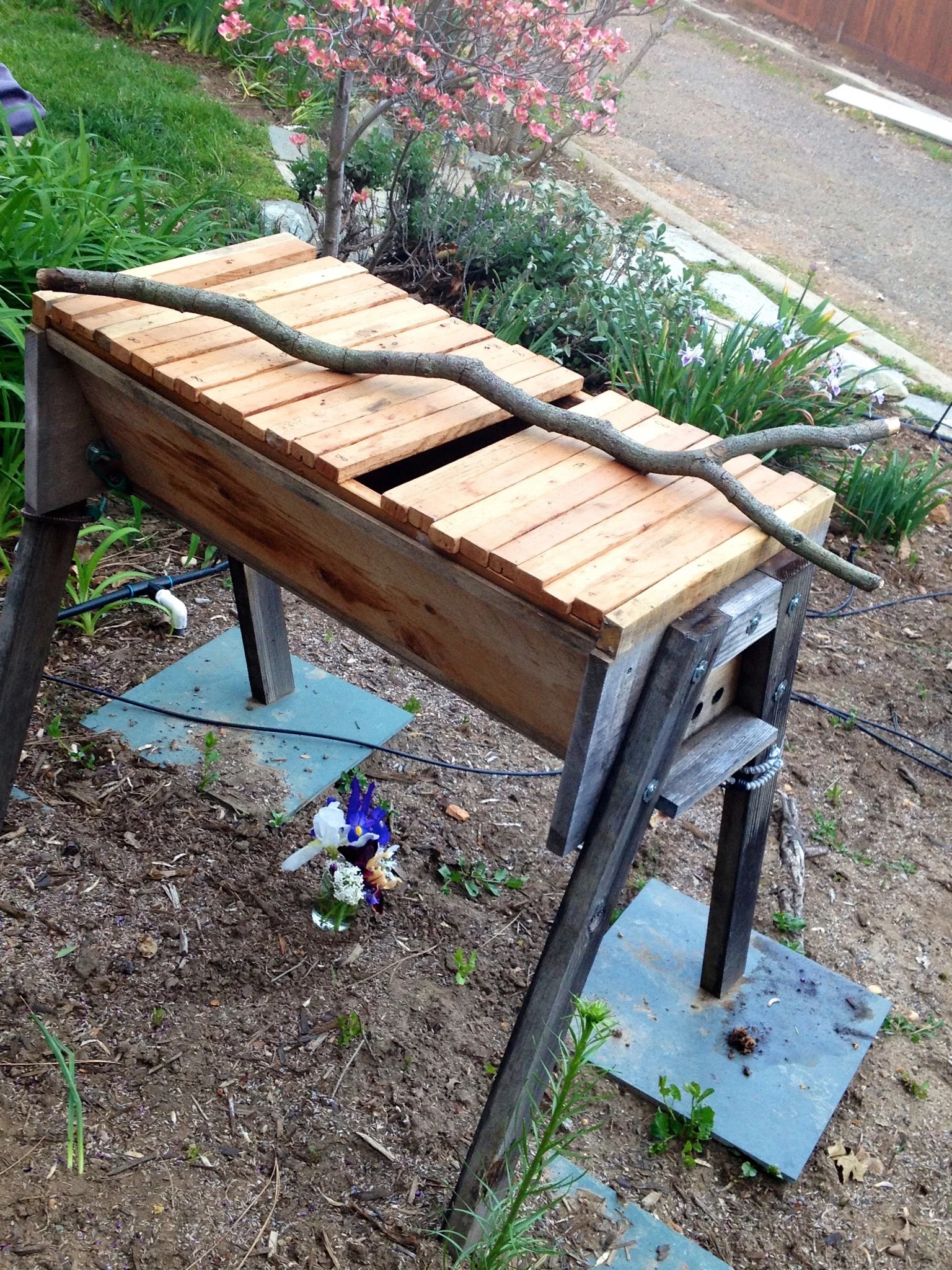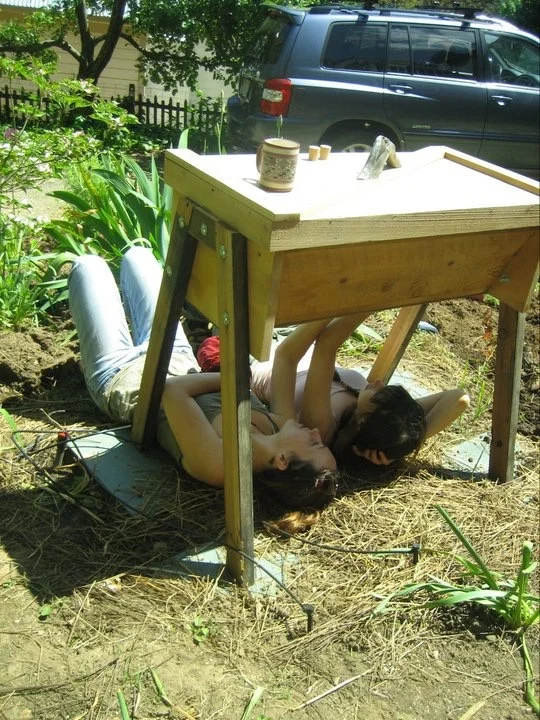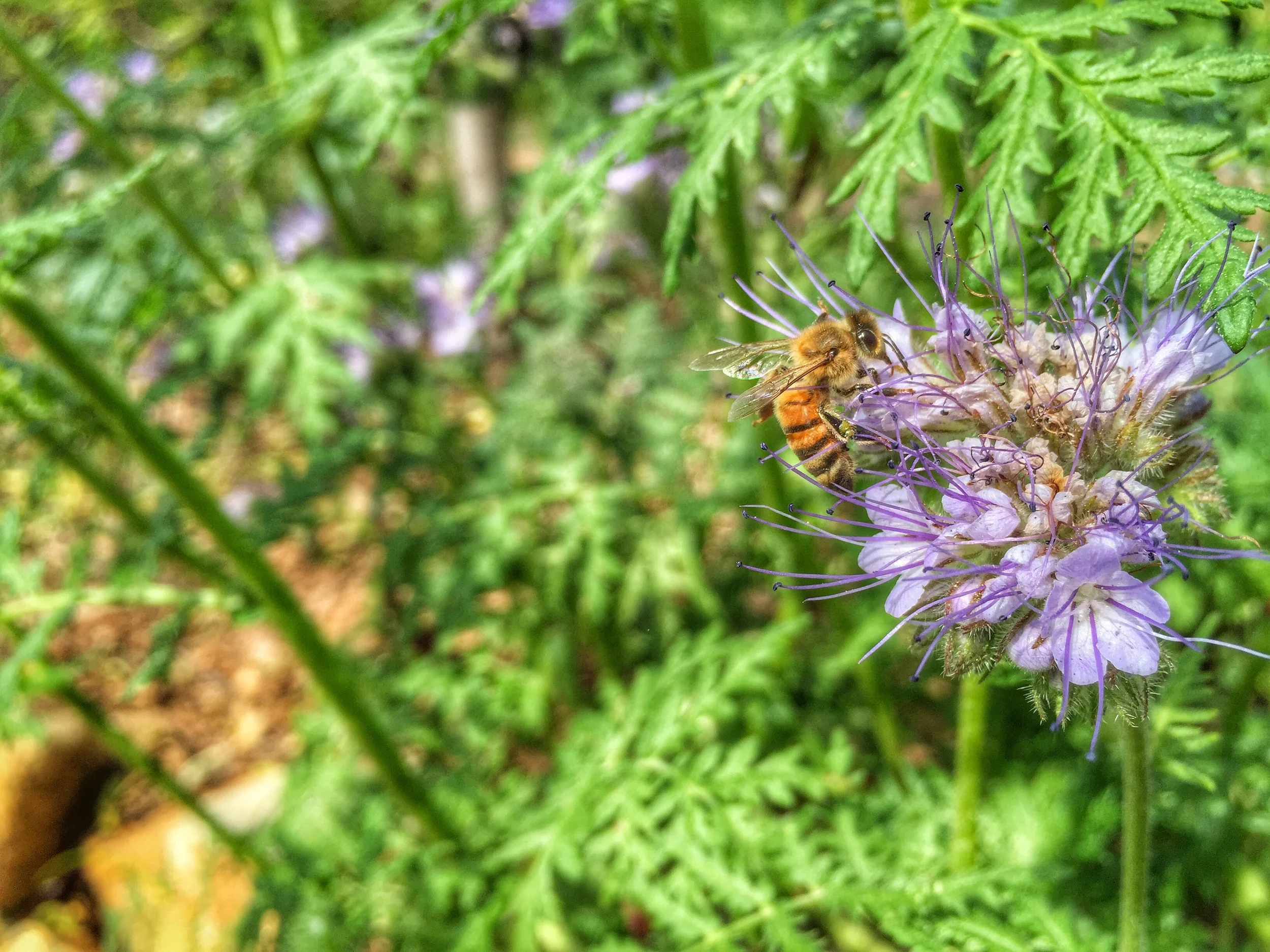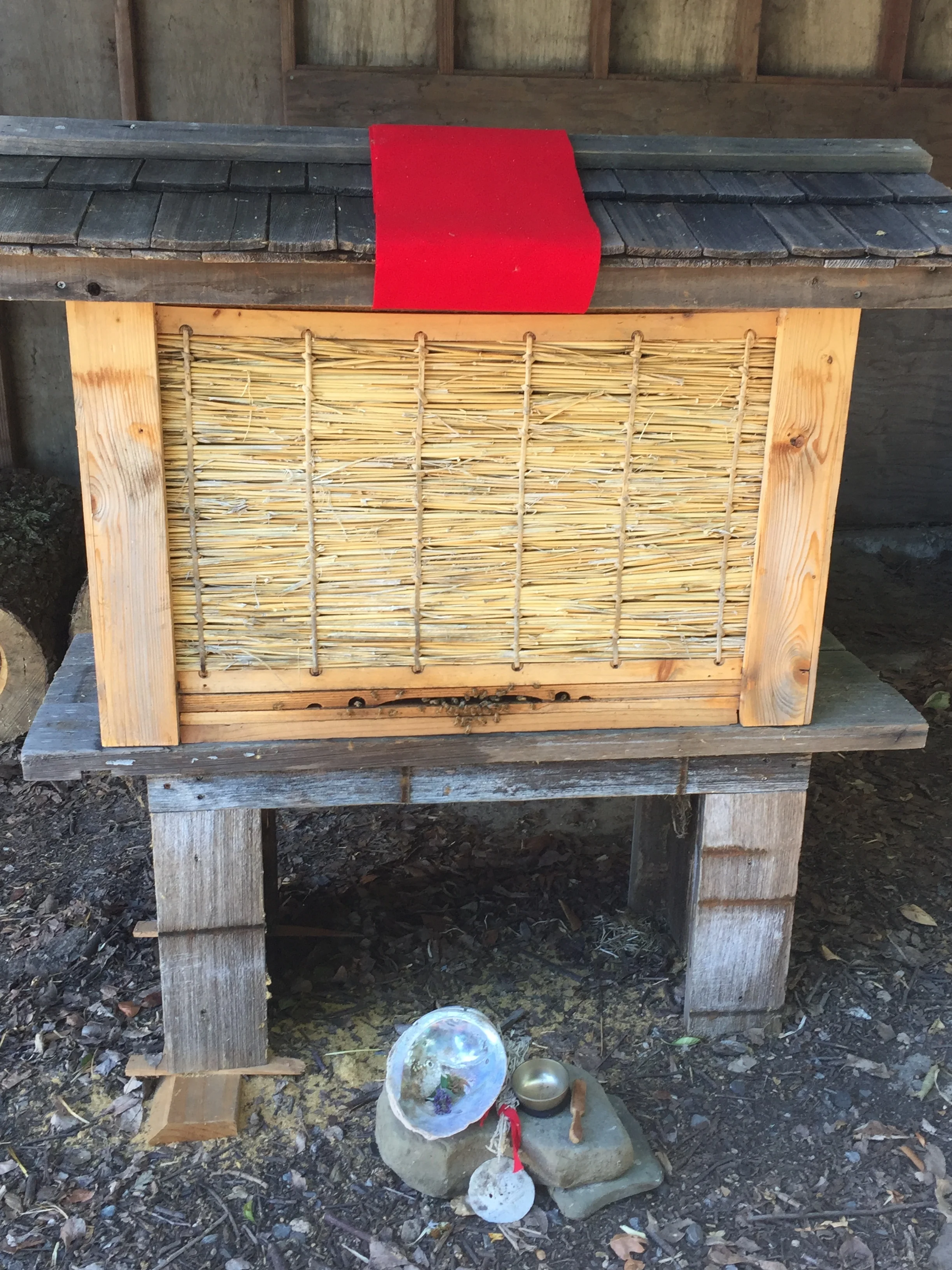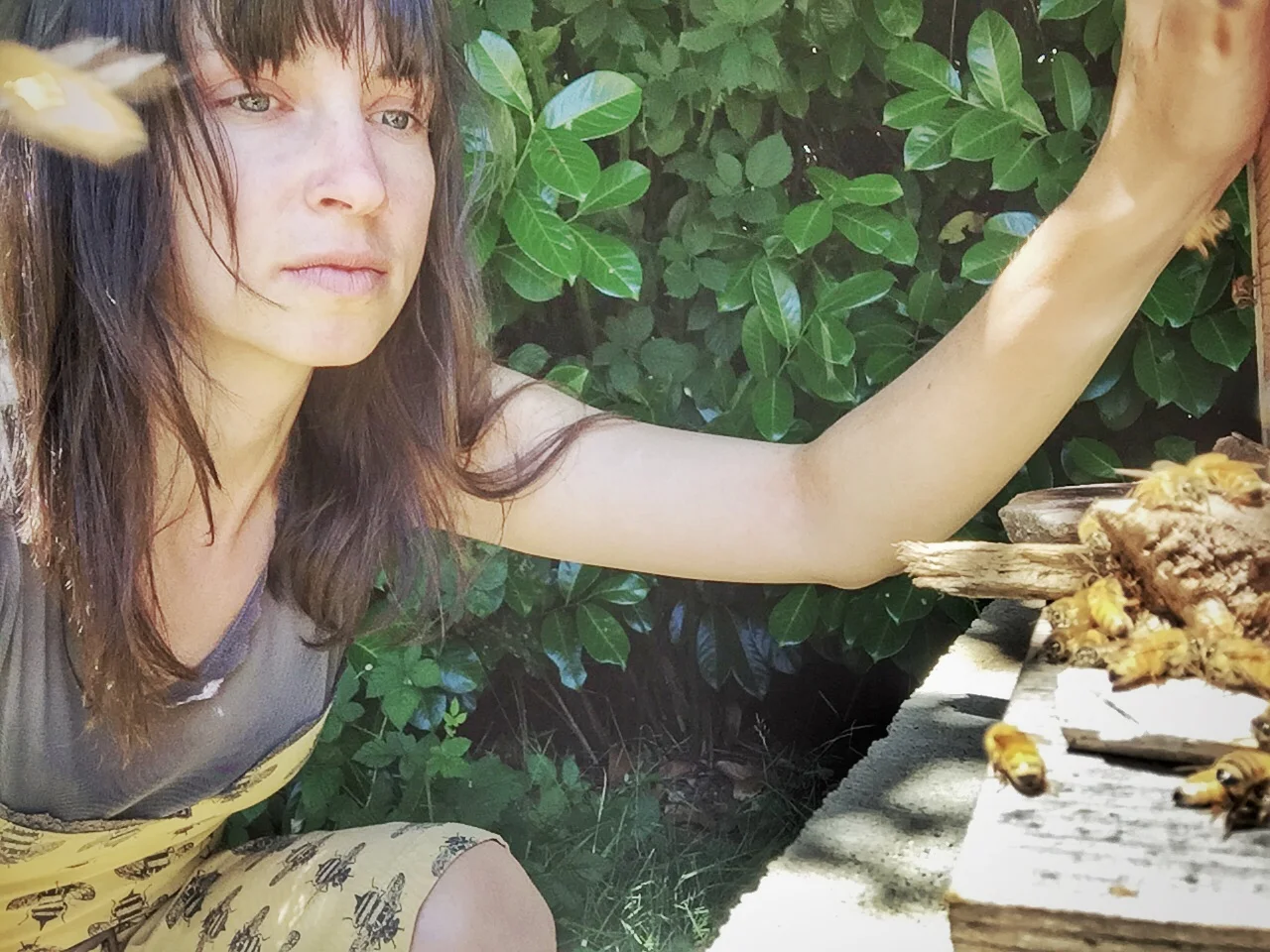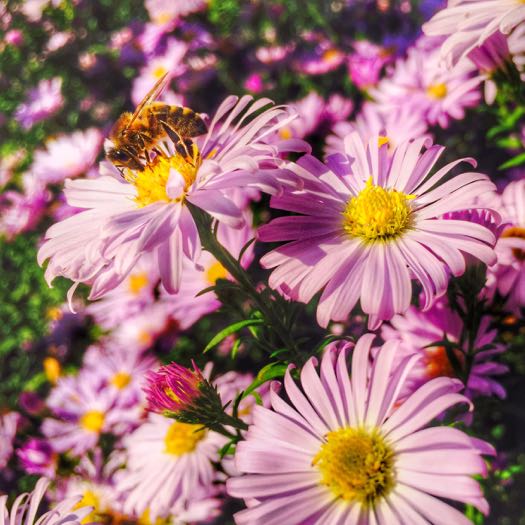Long Live The Queen
In conventional beekeeping practices we are taught to replace the Queen bee every year. They call it requeening. The are a few reasons for this. Sometimes a hive looses their queen and you need to replace her if the bees don’t.
In conventional beekeeping practices we are taught to replace the Queen bee every year. They call it requeening. The are a few reasons for this. Sometimes a hive looses their queen and you need to replace her if the bees don’t. Sometimes a hive is dwindling and the only way to save them is by brining in a new queen. Those are the only two reasons I support. Now, lets talk about the main reason people requeen: productivity. The idea is, humans want a productive, fertile, active queen in her prime. Most queens will live 2-5 years, but the older queens *might* not be as productive as the young queens. As a result, beekeepers are advised to requeen every year.
This means removing and killing the mother of the colony and forcing the colony, after this crisis, to adapt to the scent of a new queen in order to survive.
I seriously just came across a blog where someone had defined SPRING as S= Stimulate For Rapid Foraging Force, P = Prevent Swarms, R = Rotate Hive Bodies I = Inspect The Productivity of the Queen, N = New Queen, G= Give 1:1 Sugar Water. SPRING.
GAH! Basically EVERYTHING I teach people not to do.
We pour the acid of our youth-obsessed culture over everything we touch. If she’s not young, vibrant and popping out babies, get rid of her, even if she’s still fertile. Fuck. It’s like Patriarchy looking you square in the face and saying, after 35 we consider your a geriatric pregnancy. Might as well off us now.
What is a Queen? What is a Mother? Does a queen loose her value as she matures? Is a 22 year old mother better fit for the job than a 32 year old mother?
Hey beekeepers, the colony knows how to replace their queen when it’s time. Sure sometimes the new queen kills the old queen, but did you know that sometimes the both queens, young and old, live in the same colony together. Bet nobody every told you that.
Don’t listen to the bullshit. Don’t replace your queen arbitrarily. Don’t enforce the weakening of the species. And don’t for godsake, allow ANYONE to let you loose your sense of value. Fertility comes in many forms. Smash the Patriarchy not the Queen.
Dare To Behave Like They Hear You
Dare to offer the earth a little more beauty. She is blessing you with beauty relentlessly.
.
Dare to speak to nature as if it is listening. You are made of the same stuff, and you are here being it, after all.
Dare to offer the earth a little more beauty. She is blessing you with beauty relentlessly.
.
Dare to speak to nature as if it is listening. You are made of the same stuff, and you are here being it, after all.
.
Dare to behave as if the bees understand your whispers, your songs, your prayers, your praise.
.
Dare to carry on as though the the Little People are watching, with their fey eyes, wondering if the cake you crumble in offering is you actually Remembering.
.
Dare to believe that the hand that touches paint brush to hive is somehow related to the hand that coaxes islands from the sea.
.
Dare to consider the trees hear your words when you speak to the bees.
.
Dare to comprehend that you live at the same time as honeybees, as lions, as mama orca whales, as baby elephants, as king gorillas, as murmurations.
.
Dare to believe you are worth someone falling as madly in love with you as you are with this earth.
.
Dare to believe that without books, without internet, without opinions, without expertise, you know how to care for the precious living things. You know what to do. You know what to do.
Mistress of the Wild
If you reach your hand back into the mythscapes of history, you will find, over and over, the story of the sacred other. The lover. The Twin. The Sister. The Brother. The Sacred Adversary. The Mirror. The Queen and her King.
If you reach your hand back into the mythscapes of history, you will find, over and over, the story of the sacred other. The lover. The Twin. The Sister. The Brother. The Sacred Adversary. The Mirror. The Queen and her King. You will find a story of a divide. A separation. A rift. A searching. A reunion. Isis and Osiris. Mary Magdalene and Jesus. Ariadne and Dionysus. Ixchel And Itzamná. One can not exists without the balancing force of the other.
It is said that Apollo, the Sun god, was the father of beekeeping, while his twin sister, Artemis, the Moon goddess, was the protector of the wild bees. The Master beekeeper was tempered by the Mistress of the wild ones. One governed civilization, while the other protected the wilderness. We over-civilized, wild souls sit at a turning point. We can not reject civilization, but we can also no longer allow civilization to reject the wilderness. We are being stalked by the wild. It is hunting us through our dreams, our water, our longings, our delusions. After all, Artemis is the swift and decisive huntress, is she not?
By César Álvarez Dumont
By Louis Grell
As a beekeeper, I am always asking how to balance the beauty of cultivated beekeeping with the rewilding necessary for species survival. In the modern era, the Father of Beekeeping has taken center stage, while the Mistress of the Wild bees has been systematically erased and forgotten. Her fierce wisdom pushed aside. Her moon-tipped arrow ignored. Her animal-speak hushed. The living myth continues on and we find ourselves netted by all we have forgotten. We can not survive off the wisdom of Apollo’s Sunlight alone. The bees know this, and so they have cried out with the only language that can truly grasp our adolescent attention span: Death.
Every myth is a journey. Every epic a story of light and dark, balance and ambiguity. Separation and reunion. Make room in your heart for the Huntress. For she who speaks the language of the wild. That heart chamber is not created by hatred of the God who slew the serpent, but rather, by acknowledging his role in the sacred arc of story, and stepping into your place in the continued telling. Apollo is not the enemy. He is not complete without his twin. The moon has no light without the Sun. There is a place for the beekeeper and the tender of the wild bees. Make room for your own paradox. Traverse betwixt and between. The bees are showing you how, so get your ear low to the ground and become the myth-weaver.
Beekeeping In Skirts
It’s officially bee season. This means people are suddenly interested in me again in *that* way. You know: How many hives do you have? Where do you sell your honey? Are bees still in trouble? What’s killing them? What do you mean you don’t sell honey?
It’s officially bee season. This means people are suddenly interested in me again in *that* way. You know: How many hives do you have? Where do you sell your honey? Are bees still in trouble? What’s killing them? What do you mean you don’t sell honey?
.
These are all great questions and I understand why you ask them, but I’m gonna answer a different one: Do you really do beekeeping in skirts?
Yes, yes I do. And pants. And bee suits. And shorts. So let’s talk about it. Let’s talk about the skirts. It’s cause I’m a feminist right? Nope. Do feminists even wear skirts? It’s 2019, of course we do.
Beekeeping in skirts is about a number of things. Sure, on the surface level it addresses women having a voice in the male dominate world of beekeeping. However, not all women wear skirts, and I know some pretty fly dudes who like to sport a skirt from time to time, so while the women in beekeeping argument is important, it’s not why I wear skirts.
Physically, they’re more comfortable. Wear what you want.
But I digress, beekeeping in skirts is also a statement about the kind of beekeepers we can become. Beekeepers who move slow, listen to the bees and don’t try to enforce our will upon them. When we are aggressively serving our own agenda we do things to a hive that cause the bees to react and defend. Then we need suits. (Obviously wear a suit until you feel safe and comfortable without one and always be aware of regional issues such as Africanized bees). I wear skirts because I believe in a bee-centric, slowed down approach bees.
Beyond that, the final reason I wear skirts is because of relationship. The relationship I’m interested in while serving the hive is between my seat of creative power and the creative Earth herself. It’s personal. It’s womb to womb connection with nothing between myself and the Earth. It’s an old way. A folk wisdom. A reclaiming. It’s not for anyone else. It’s not sexy. It’s not defiant. It’s relational. What a woman hold between her legs is holy and utterly wise. Dare I say the same for a man. Holy. Wholly. Whole. Nothing less than reverence will do.
Feminist Beekeeping: Boundaries
Honey bees have taught me so much about boundaries. They have taught me how to be more direct and use my voice.
Honey bees have taught me so much about boundaries. They have taught me how to be more direct and use my voice.
As Beekeepers, we are taught to suit up and enter a hive on our time and our agenda. The bees may not like it, but who cares, we’re protected and we know what they need best. We’re only her to help. Or take some honey. No big deal.
Wrong.
When we practice actually listening to the bees, we discover that there are days when the bees are calm and sweet. Crawling over your bare hands, humming their life-giving song. Then there are days with simply cracking open the lid causes a flurry of annoyance from the hive. You get bumped a few times. Consider it a warning. Sometimes they don’t even bother with a bump and go straight for sting. You don’t know their inner workings. Don’t pretend to assume. Listen to them. Bees know their boundaries and if you are not fully present and fully attuned to them, you will get stung. It doesn’t get more clear than that. They are excellent teachers in the word “No”. They are exquisite in their precision and directness.
As a result we need to be more attentive to our listening skills. Remember, always, that when you open a beehive you are entering a body. You must ask permission. You must do your very best to discern if now is a good time for the bees or just convenient for you. We must seek to learn from them, rather than being voyeuristic.
Bees have taught me about my own boundaries around consent and what happens when those boundaries are violated. They have taught me that there is an appropriate time for sting. And they have taught me that even if another person pushes my “No”, gaslights me, or tries to tell me my “No” is anything other than my “No”, I can, and will, use my voice to make that “No” carry the power of 50,000 stinging sisters who’ve taught me a thing or two about sovereignty.
Feminist Beekeeping: Trust yourself
Look, if we’re going to do better as earth stewards, we’ve got to practice trusting the inner voice more. There is no manual for how to listen to your bees. Or your body. Or your heart. You have to do your very best to go with that gut feeling.
Trust yourself. Trust yourself. Trust yourself.
Look, if we’re going to do better as earth stewards, we’ve got to practice trusting the inner voice more. There is no manual for how to listen to your bees. Or your body. Or your heart. You have to do your very best to go with that gut feeling. Or womb feeling. Or heart feeling. Pick an organ. They all feel. But trust the feeling. Whether it’s a feeling to open your hive and check on them, even though they seem fine. Or a feeling that they are struggling with a predator even though you see no signs. Or the feeling that your bees are grateful to you even if you can not speak their language.
So often when we open our mouth to say we just “have a feeling”, we get the eye roll or the proverbial pat on the head, while “experts” tell us what’s really going on. Sound like beekeeping to you? How about being a woman at the doctor’s? Same story? Or in politics? Or the music industry? Or in science? Or or or.... how often do our feelings get spoken of in dismissive terms, by ourselves and our peers. What would happen if our society wasn’t so contemptuous of “it’s just a feeling.” What if we gave the feeling as much credit as a “hunch” or a “stoke of genius” (re: male intuition being celebrated).
Once a female cop told me I was just a frightened girl making things up when I called the cops about a stalker. I wasn’t.
Once a doctor told me I wasn’t anemic. I was making things up. Turns out, I was.
Once a dream told me there was a black widow eating the bees inside my hive. There was.
Once, I turned down a street on my birthday because I “felt” there was a swarm of bees nearby. There was.
The first step to using our voices is to trust our inner voice. Sure, do the research, educate yourself, use all your faculties, and when all is gathered and combed through, set it aside and let the inner voice speak first.
Shamanism Meets Tea Time
I’m about to board another flight to London. I seriously can not wait for scones and tea at No. 9 on the Green in Wimborne. I am visualizing pouring cream into a saucer as I write. Heaven.
I’m about to board another flight to London. I seriously can not wait for scones and tea at No. 9 on the Green in Wimborne. I am visualizing pouring cream into a saucer as I write. Heaven.
I have a suitcase filled with long skirts, a wooden distaff, special rocks, wellies, and an air purifier. Not the most obvious choices for a trip to England. Ok, the wellies get a pass, but they’re so damn heavy and awkward. (Please don’t tell me to wear my weight on the plane. You ever try wearing knee high rubber boots 7 miles over the ocean?) I’m on my way to the Sacred Trust, a school for shamanism, deeply rooted in the Path of Pollen, a European shamanic tradition with the honey bee at its heart. The air purifier is just because I’m allergic to mold. Go figure.
People have started to ask me if I live part time in Europe. I’d LOVE to say Yes, but the answer is, not yet. Since 2010 I have been traveling to the Sacred Trust to study a form of shamanism that survived the Romans, the Dark Ages, and the Inquisition. I equate it to a graduate program. A big investment with my time and money, which is helping improve my mind, body, heart, career and life path. That’s how I justify it to my left brain. My right brain couldn’t give two effs, because this work is 600% soul food.
The school teaches a line of gynocentric, bee-centric shamanism that honors the feminine principal. It is mostly made up of female students, although there are many men starting to take newly offered classes for all genders. It mostly works with bees, but there are serpents, stags and spiders woven in. It is multidimensional and embraces the betwixt and between.
The tradition is a small golden thread. A quiet hum that lasted through the burning of our grandmother’s grandmothers. It’s an answer to my American hunger for spiritual belonging. A hunger that longs for a sense of spiritual roots, but wars with how to be a native Californian without appropriating the spiritual traditions of the Indigenous people of this land. I can not begin to describe the relief I felt when my heart encountered the bee tradition and I cried those soul-aching tears of recognition, knowing that somehow, not all had been lost.
Let’s unpack that for a moment. First and foremost, I need to address privilege. I’m a white, western woman. My ancestors are oppressors and I carry that in my lineage. I refuse to be blind to my own privilege, and as a result of that refusal, I keep discovering ways that I have been. Let me just state that I am learning and I have a long way to go. Also, I fly over an ocean 1-3 times a year in the pursuit of earth-based wisdom connected to the part of my ancestry that was oppressed by Patriarchy and Christianity. So while I resist the dominant social institutions of the former two powerhouses, I am also partaking in the hypocrisy of the entire capitalist, planet-degrading #deathspiral, by using fossil fuels to catapult me in a metal box to a place where I can feel connected to the earth. That’s some real bullshit right there.
Yet, I also subscribe to the idea that there are certain soul places on this earth. Certain spots that speaks to us. Speak through us. Calls us. Awakens us. Claim us. Can a person be OF their native soil and also OF a patch of earth 6,000 miles from where they first touched their feet to the dirt? I most certainly have been claimed by more than one place in my life. Just are sure as I have been claimed by more than one heart. The English countryside is one of those places. And it requires a good set of wellies.
On with further unpacking. When I say I cried because “not all had been lost”, I mean, I am woman and a member of the gender(s) who were and continue to be shamed, maligned, violated and abused for our sex/identity. The wisdom ways of women and the honoring of the feminine in earth-based traditions were nearly snuffed out in Europe’s long history of violence against the life-bearers. Coming to a tradition rooted in my ancestor’s homeland that honors the voice of the womb and the power of the feminine principal is cathartic, to say the least. We ascribe voices to various body parts all the time, but when was the last time you considered the womb to have a voice? Not just the heart, or the head or the phallus, but the womb? Think about it.
Now imagine if you found a place tucked between meadow and forest where you were encouraged speak with that voice. Dance with that voice. See with those eyes. Utter with that yonic intelligence. Imagine relearning your body as though it were flowing with nektars, like a flower. Imagine learning new tongues informed by wind, sea, honey and fire. For those of you who have been wondering why my feed is periodically filled with photos of tea and cobblestones, that is why.
What is The Path of Pollen? I can’t really answer that. It is indefinitely ancient and ever new. It’s part of a very old story. It’s part of writing a new story. Its fingers are made of threads, its head made of stars, its womb made of bees, its longing made of serpents entwined. It is wombic. It is phallic. It is Both And. It is Neither Nor.
I am part of a tradition that stretches its storylines back through the distaff path of ancient Europe. It is a tradition of bee women, known as Melissae, and is very much alive and well in the modern world. The Melissae were the bee priestesses of ancient Greece, most commonly connected to the oracular Temple of Delphi. The Delphic Oracle, also called the Delphic Bee or Pythia (pythoness), was the prophetess for the Earth and of the Earth. It is said the priestesses inhaled the breath of the Dragoness, Python, Gaia’s daughter, and entered a trance, uttering prophecy for all who came to the temple.
I am here to remember how to listen to the voice of the earth, as she arises, a buzz, from within. Ten thousand bees offering nectar on the breath of python. May I be so lucky to glimpse her in the mirror.
And I’m here for tea, scones and whisky, because I’m multidimensional AF.
:::The Right To Grieve:::
This week my inbox has been full of panicked emails from beekeepers loosing their hives. October and November is the time many hives die. This can be for a number of reasons and happens whether you treat your hives for varroa mites not. Honey bees are a threatened species. All of our pollinators are, which means all of life is threatened. It’s a lot to contend with emotionally.
This week my inbox has been full of panicked emails from beekeepers loosing their hives. October and November is the time many hives die. This can be for a number of reasons and happens whether you treat your hives for varroa mites not. Honey bees are a threatened species. All of our pollinators are, which means all of life is threatened. It’s a lot to contend with emotionally.
When we give ourselves permission to cultivate a personal relationship with our bees, we need to give ourselves equal permission to grieve them when they die. If we are to knit ourselves back into the fabric of life, we must feel it.
Our culture famously doesn’t do a great job with healthy expression of emotions. When we do have strong emotions, we call it feminine, as if it’s a bad word, i.e. “don’t be hysterical". Men aren’t given permission to show emotions and women still carry the burden of their emotions being associated with actual mental conditions, re: hysteria. Ya’ll, hysteria used to be a nervous condition in women thought to be caused by uterine dysfunction. 'Hystera' meaning “womb” in Greek. 😕
We are taught that feelings are dangerous and a sign of weakness. We have no cultural container for grief and dying. If we don’t allow ourselves to feel the grief at the loss of our fellow non-human kin, then we sever ourselves from the life of our planet. When we don’t feel grief, we numb ourselves, and by numbing ourselves, we allow (and perpetuate) the continuation of the grave violations to life our species inflicts upon itself and all other life.
To all you beekeepers out there who cry for your hives, while “professional” beekeepers roll their eyes at you, keep going. Cry, rage and grieve. We are not an industry. We are a species trying to remember itself. We are a species trying to heed the clarion call. We will not save our planet and it’s preciously unique life forms without first feeling the severity of what’s happening all around us. Then we turn, once more to the beauty. We turn our cheek to the sun and bend our ear to the soil. We fall in love again.
#bees #righttodie #beekeeping
Feminist Beekeeping
I’d like to take a moment to talk about why Feminist Beekeeping is a thing at all.
First, let’s understand a few things.
1. We are all struggling with language and the meaning behind words.
I’d like to take a moment to talk about why Feminist Beekeeping is a thing at all.
First, let’s understand a few things.
1. We are all struggling with language and the meaning behind words.
.
As a natural beekeeper part of my job is to rework the language around beekeeping. Changing words like “worker bee”, to “female bee” or “sister bee” helps to shift our mentality away from the industrial era model of beekeeping which equates bees to factory workers. Similarly, working with empowering women and celebrating the essence of the feminine in all things/genders requires some tricky navigation around the rocky shoals of language.
2. Feminism is not exclusive to women.
I know this is basic feminism 101, but men can be feminists too.
Let’s review:
.
fem·i·nism
noun
the advocacy of women's rights on the basis of the equality of the sexes.
fem·i·nist
noun
1.
a person who supports feminism
Okay so we have a dictionary definition. That’s a start, but also riddled with pot holes. The point is, you can advocate for the equality of the sexes in all areas of your life, including beekeeping. You can be an advocate for how women are treated in this industry, etc etc
3. Feminist is not a bad word.
.
If you look back through the history of language, many words denoting bad, angry, evil or weak characteristics have their roots in gender shaming. Look up left-handed, sinister, witch, wicked.
Our modern stereotype of the angry, man-hating feminist is but one example of the demonizing of the feminine. You don’t have to be an angry woman to be a feminist. You are also completely allowed to be angry and a feminist. Just saying.
Feminine is derived from Latin ‘femina’ meaning "woman, female," literally "she who suckles”. As in, she who bears children and suckles them at her breast. So in its oldest sense, feminine means woman. The word has gone through centuries subjected to patriarchy and is now associated with qualities of the “weaker” sex. Qualities associated with delicacy, male-attracting, handkerchief waving, the good Christian wife, being soft spoken, being shrill, being emotional etc.
However, the term has been reclaimed by women and men alike to denote an energy or quality that is not solely based on biology, but can be understood as something that exists within all things and people. This type of feminine is often paired with other words to differentiate it. Sacred feminine. Divine feminine. Feminine principle. It has a mirror energy we call sacred masculine, divine masculine, or masculine principle.
These terms are adopted social constructs that help give us language in a dualistic world, but they don’t in an of themselves mean woman or man. We all have these intertwining, nuanced, full-spectrum internal forces. We play with the terms masculine and feminine as they are expressed from within us to help us better express our own wholeness, REGARDLESS OF GENDER.
When I talk about the feminine or the sacred feminine and its importance in the beekeeping conversation, I am referring to this: in the cultures of the ancient world (namely before classic Greek and Roman, where our language and much of our western social structure comes from) there was once a time of predominantly matriarchal cultures. This did not mean the inverse of patriarchy, where women dominated men (that’s patriarchal thinking), but rather cultures that honored and celebrated that all life comes from woman. These cultures revered the life-giving qualities of woman: breast milk, pregnant body, maiden/mother/crone, cyclical phases, etc. The earth was seen as the mother of all peoples because the planet literally provides us with life. Certain creatures and aspects of nature were also associated with life-bringing: cow/bull, moon, ocean, rivers, bees, and serpents, to name a few. Furthermore, what brought life could also consume and destroy (floods, decomposition, winter), which is where we get the many goddess myths associated with both these qualities. Hathor/Sehkmet, Kore/Persephone, Brigid, Kali, etc.
Enter the slow transition over to Patriarchy, which brought with it not just a cultivation of nature (hunter/gatherer to agrarian transition), but also a dominance over nature. Blend that with a shift to male dominant gods and eventually monotheism, and the power over women became synonymous with power over the land. I’m aware that is a very short, crude surmising of a very big topic.
Now we have in our lexicon a number of negative associations with anything to do with the life-bringing/life-consuming ebb and flow of that which is associated with woman. Furthermore, our dominance over nature continues in its most abhorrent destructive expression. We have experienced a terrible, life-threatening loss of the sacred associated with earth and nature as our life-bearing mother. This dominance-over mentality (let’s just remember this is also part of rape culture) is deeply imbedded in conventional beekeeping practices. It is found in our hive designs, our methods, our chemical uses, our thought and our language around one of the creature most heavily associate with the sacred feminine throughout time.
So, does feminism have a place side by side beekeeping? You bet it does.
::Becoming the Nektary::
California is burning. Greece is burning. Norway is burning. England is burning. The land is hot, cracked, brittle. The veins feel feeble, dry. As a child of California, I know fire season, but not like this.
California is burning. Greece is burning. Norway is burning. England is burning. The land is hot, cracked, brittle. The veins feel feeble, dry. As a child of California, I know fire season, but not like this.
If the bees teach us of community and service, they also teach us this: we much become the nectary. We must restore the flow of nectar to the land. We must do this within our own bodies and for the Mistress of Nektars herself: the Earth. We must become the flow-er. We must re-learn how to allow ourselves full access to our senses and our expression. When we do not dam, stifle, re-route our holy flows, we transform into healing vessels of milk and honey.
We are witnessing a earth hungry for nectar. We are witnessing our society, our nations, our animals, our peoples bleed out from fresh and old wounds. But that kind of flow does not feed the land; it cracks the earth.
I constantly ask myself how to be an agent of positive change in this 11th hour? There are many answers. Some are daunting. Some are humbling. Some are downright uncomfortable and gritty. But some answers are borne of water. Some are about the nature of becoming. So today, while I do not turn my eyes away from social activism, I keep an inward gaze on what it means to become the nektary. What it means to give ourselves this gift of total self-love. To let our nektars fall like rivers down our cheeks and heal with our tears. To let the moon guide our red waters. To let cleansing sweat rise from our skin and bathe us in catharsis, dance, reclaiming, embodiment. To dare to feel our own ecstasy. To let the full expression of what we are and what we feel move FREE within us. Drip from us. Circulate.
Nek-tar. Greek in origin. “Nek” meaning “death” and “tar” meaning to “overcome, cross over”. The liquid ambrosia that overcomes death. The drink of the gods. Liqueur vitae. Fluid, flowing life.
There are many roads to healing the burning earth, and none of them can be taken if we do not free our own fluidity from the shackles of a suppressed feminine flow. Men, I mean that sacred flow inside you too. Become the rivers, my loves.
Male Beekeepers as Allies
How Male Beekeepers Can Be Allies For The Female Beekeepers In Their Lives:
How Male Beekeepers Can Be Allies For The Female Beekeepers In Their Lives: .
::Please Stop Bee Shaming Us::
In beekeeping there is an awful lot of vitriol and shaming, especially toward natural beekeepers. Many of those natural beekeeping humans also happen to be women. Just look at the Learning from the Bees Conference happening in Amsterdam this month. The ratio of presenters is 41/34 women to men. That’s more than half! Women are making waves in the beekeeping world. Considering that beekeeping is still a male dominant industry, this is a very cool thing to see.
I recently spoke to a US hive provider and he said 70% of his clients are female. The face of beekeeping is changing and there are many more women out there dawning the veil (hehe - see what I did there?).
So dear men, please stop shaming us for our ideas, methods, relationship to bees and voices, be they scientific, spiritual, agrarian or urban.
::Listen::
I can not tell you how many times I’ve watched or experienced a man bulldoze over any conversation about beekeeping. I’ve seen it happen at countless beekeeping association meetings. I’ve watched women on speaker panels have to aggressively fight to get a word in. I witnessed silencing. This is nothing new in any industry.
I experience the worst mansplaining in the older generation of white males who either disregard me completely or treating me like a “cute” little hobbyist beekeeper who doesn’t know any better. Ask us questions. Ask our opinions. Ask why we are doing things certain ways. Wait for us to ask for your advice. Have a discussion, not a telling. Be curious.
.::Have Our Backs::
Participate in feminism. Be engaged in standing up for us and advocate for our voices to be heard. I know a lot of you are super rad feminist men who love bees and all those who support them. Show us.
::Learn From Women::
If you’re new to beekeeping, include books by female authors. If you’re looking for mentors, find mentors that are women as well as men. Educate yourself fully.
I love you. I believe in you. Let’s save this planet together.
Clipping Her Wings
In *some* beekeeping practices beekeepers are taught to clip the wings of the queen. This is done to prevent queens (mothers) from swarming (reproducing). When you cut off her ability to fly far, you cut off her ability to bee who and what she is.
In *some* beekeeping practices beekeepers are taught to clip the wings of the queen. This is done to prevent queens (mothers) from swarming (reproducing). When you cut off her ability to fly far, you cut off her ability to bee who and what she is. To clarify, she can begin to swarm, but often falls short or gets left behind and the swarm has to return to the hive. When you clip her wings, you take her birthright away from her. And by her, I don’t just mean the queen, I mean Her, the colony. The queen bees needs to be able to fly once a year. Every spring she leaves the colony in a swarm of bees, landing on a nearby tree branch or post and waiting while her daughters scout a new home. In this way, she leaves behind a thriving hive with their virgin queen, and starts a new hive, thus reproducing on a colony level. The superorganism gives birth to itself.
The female body and the body of the earth and her creatures has been seen as an object for thousands of years. There is a direct line of connection in the human psyche between the body of the earth and the body of a woman. Both were/are seen as wild, unsafe, monstrous and necessarily needing to be conquered and tamed by Patriarchy. There is a reason we call the planet Mother Earth. All life comes from woman. This is not man shaming. This is woman claiming her birthright to freedom. Earth and woman have suffered for their existence. Both have been suppressed, oppressed, mutilated, studied, dissected, rejected, obsessed over and violated. Even on this platform we are not permitted to express our nature to its fullest without shame, harassment and censorship.
People get angry at me when I equate feminism with bees. When I draw connection between the body of a queen mother and the body of a woman. I say take your blinders off and look at what we do to our bodies in the name of profit. Clipped wings equals no swarming and better honey yields for humans while the mother and her daughter suffer. Clipped reproductive rights for half the human species mean what?
Just sayin’
Making Room For Our Voice
If my mood were a snake today, I’m pretty sure you’d find me curled under a rock, rattling my tail.
No one did anything. It’s just a combination of hormonal tides being governed by lunar sway. Call it the wild bleeding through.
If my mood were a snake today, I’m pretty sure you’d find me curled under a rock, rattling my tail.
No one did anything. It’s just a combination of hormonal tides being governed by lunar sway. Call it the wild bleeding through.
I had to buy my first bee jacket recently. Nothing fit. Not even the extra small. I’m 5’7, so I’m not the littlest woman in the world, but the shopkeeper kindly said, “Oh yeah, they don’t make bee suits for women. Try the child’s size.” Are you kidding me? I went to a corner, internally hissed fire and returned to try on the child’s size. It runs a little large. Made for boy children, you see. I bought it.
There’s a famous beekeeper from my home town who is currently on a campaign to remove and destroy all natural log hives. They are illegal, apparently. People respect him because he’s an organic beekeeper. You want to know what he calls natural beekeepers? “The Taliban of beekeepers.” He said it to my face while trying to justify taking handfuls of bees and drowning them in alcohol to get a mite count. Call me unimpressed.
I have lots of respectful arguments brewing, but today I feel like chewing rocks.
My point my is, I think it’s time to add one more type of beekeeping to the ever-growing list of styles. Natural, bee-centric, treatment free, scientific, etc.
Allow me to introduce: 💃🏻Feminist Beekeeping. 💃🏻
- It takes into account what the bees as a large organism of predominantly female beings are trying to teacher us.
- It requires us to listen to the wild.
- It involves a series of metaphoric lessons we as humans can learn about how to treat women and the earth (same/same).
- It involves sometimes giving zero fucks.
- It involves not putting up with mansplaining beekeepers.
- It means changing the male-dominant industry.
- It mean respect the Queen.
So send me your best #feministbeekeeping stories, metaphors, lessons. Time to hear what you badass women and men are doing to change the narrative.
With love and some sting.
-beekeepinginskirts
(Not beekeeping in god damn oversized men’s suits).
California, My Love
I was speaking with a friend today about the nature of range management and the restoration of California grasslands. Thinking about what California used to be like when the land was stewarded by its people. Thinking about the effects of non-native grasses or the loss of habitatfor our wild creatures.
I was speaking with a friend today about the nature of range management and the restoration of California grasslands. Thinking about what California used to be like when the land was stewarded by it's people. Thinking about the effects of non-native grasses or the loss of habitatfor our wild creatures. We got on the topic of the reintroduction of wolves in Yellowstone and how it helped to restore the land. How much we have forgotten. How much we have to learn again: the inherent wisdom of nature to create such an intricate system where apex predators are a necessary part of the ecology of a place. He said the wolves are not a mistake.
This is a straight forward statement, but in the wake of this week’s wildfire devastation the feeling of it caught it my throat. These fires may be natural, but the severity of them is most certainly a result of climate change and poor land management. Sometimes, no matter how optimistic I am, I look around at what we’ve done as humans and feel the overwhelm of the pain and destruction our species perpetuates on itself and all other living systems. If we are the dominant species on the planet how are we contributing to the ecology of place? Not very well at the moment. I’ve sat with this question all day of “Are we a mistake?”. I don’t believe a single thing in nature is a mistake, but here I am, turning the knife inward and asking that question of the human animal. What kind of salvation and duty lies in fully accepting that nothing in nature is a mistake including human kind? What then, is our role in the ecology of the planet? I am not new in asking this question, and I am not new in my answer. We are stewards. It is possible to lovingly coax a wild, living thing to thrive at it’s fullest expression. Ask any gardener who has that glint for the slightly untamed in their eye. There is a way to help the forests renew themselves with fire in a manner that benefits the human and non-human species dependent on them. Because we are dependent on them. Don’t let yourself be fooled by concrete and convenience. We need them more than they need us. Or maybe I’m wrong. Maybe we need each other equally. Maybe this attitude that the world would be better off without humans is part of the problem. Surely it’s time we move beyond such thoughts of manifest destiny, species privilege and the silly notion that the earth is ours for the taking. But perhaps for us all to survive, we must also move past the idea that we are a parasite, that we only take, that the living planet doesn’t need us.
All week I have come back to the simple truth of the human animal. Since the fires broke out Sunday, I have watched the human animal respond to trauma, grief, and natural disaster. I have watched in my own self and other, our animal body's need for safety, stillness, movement, shelter, food, water and love. I have never felt the grief for what we have done to our planet so acutely as watching human habitat and wild creature habitat burn to the ground. California you were the Eden once. Wildflowers for miles. Birdsong symphony. Rivers like veins to the heart. Help us remember how to take care of you. We are not a mistake.
We are guardians.
We are stewards.
We are animals.
Wildfires and Honey Bees
I woke up Monday morning to sirens, smoke and a litany of texts from concerned family and friends. The first text I read was from my housemate telling me Santa Rosa, the city where I live, was on fire. The city itself. Within minutes I was dressed and throwing belonging into my car, searching the blackened skyline for flames, and trying to find out if I was in immediate danger.
I woke up Monday morning to sirens, smoke and a litany of texts from concerned family and friends. The first text I read was from my housemate telling me Santa Rosa, the city where I live, was on fire. The city itself. Within minutes I was dressed and throwing belonging into my car, searching the blackened skyline for flames, and trying to find out if I was in immediate danger. All across Sonoma county people had been doing the same since the middle of the night, sometimes with only minutes of warning to flee. The story is the same, grab your pets, grab you photos and get out.
Forty minutes later, I was drinking coffee in a sort of dazed stupor at Wildflower Bakery while evacuees streamed through, sharing stories of rescuing horses, moving goats, or what to do about the kids, the dog, and the cats currently stuffed into the suburban out front. I didn’t have any pets to try and save. I’m a beekeeper. My little charges don’t move in a flash. I can’t ask them to hop in the car with some treats and a leash.
My hives are located in a safe area in southern Sonoma County, but I can think of a handful of hives that friends and clients have had to abandon, hoping that their home and their hives stay standing. It’s still going on, as I write. A friend just sent a text telling me how she spoke to her hive, telling them what was going on before being forced to evacuate her property. It’s all we can do, really. Tell our girls to hang in there.
Hives saved by firefighters at the property of Robert Coury (www.RobertCoury.com) in Napa County. His home and the bees were saved as of yesterday, but the fires continue and conditions remain unstable. To see more photo documentation visit his Instagram account: @spiritsearch.
Since the fires broke out I’ve been thinking a lot about the life forms, human and otherwise, that are left so helpless and exposed during this time. Thinking about wild animals fleeing their already confined habitats, easily finding themselves in neighborhoods and backyards, no evacuation centers for them to rely on.
I have been thinking about how hard it is to keep bees alive. About the myriad of issues they face due to climate change and human impact: habitat loss, pesticides, cognitive issues from lack of diversity in food, reduced nectar flow from drought and heat, record breaking temperatures, disease and smoke. This August, wildfire smoke from further north and a major heat blast forced many bees in the region to consume large amounts of their honey stores. Now the fires are here, the smoke thick and the bees hunkering down to try and survive another major blow.
So what happens when forest fire becomes a reality for bees? When the sky fills with smoke, bees fill their bellies with honey and vigorously fan their wings to try and push the toxic air out of the hive. They stop flying and retreat inward. Counter to popular belief they are not preparing to abscond.
Since ancient times, beekeepers and honey hunters have used smoke to suppress colonies and “calm them down”. Bees' response to smoke is to consume honey. The consumption of honey is also an indication of swarming in the spring, and a correlation between honey consumption and swarming/absconding has been drawn without really understanding the nature of a hive. Bees preparing to swarm in early spring must first prepare the queen for flight. The queen is much larger and heavier than her sons and daughters. When preparing to swarm, attendants put the queen on a diet for a few weeks to help her shape up for flight. In a forest fire, the queen is too heavy to be able to fly (Tautz, "The Buzz About Bees") . Without a queen, the colony dies.
A recent study in South Africa indicates that wild bees don't flee from forest fires, but instead, try to ride them out. They do this by building a protective “fire-wall” of propolis over the opening to the hive, and retreat deep within. While this study is specific to wild bees in Table Mountain National Park, South Africa, the findings point to inherent species-wide behaviors in response to fire. To see photos click here.
“Once the fire has passed, the landscape is filled with powdery grey sand and the blackened skeletons of the larger shrubs. It is this devastation of their environment which the bees encounter after the fire has passed where neither nectar nor pollen is available to them. This is when the imbibed honey is essential to tide them over this dearth period which is about 2 to 3 weeks long before the fire-loving ephemerals sprout from underground bulbs or rhizomes and flower in profusion, having been relieved of competition from other plants.” (from The Natural Beekeeping Trust).
As backyard beekeepers, our hives are much more at risk to fire than the types of wild colonies described above. For one, our man made hives do not offer the insulation and protection a thick tree or stony outcropping might provide. Second, years of breeding for “desirable” traits has led to a loss in semi-domestic bees’ ability to build sufficient propolis seals, let alone a true propolis fire-wall.
A beautiful example of a well propolized entrance to a skep hive I visited in England.
What then, can we do to support our colonies in a time of raging fire, habitat loss and smoke damage?
If you can safely return to your property, offer your bees a clean water source, such as a bird bath. You may find many displaced birds visit your watering hole as well!
Do not go into your hives while the smoke is still strong in the air
Consider late fall feeding for bees that have or are in the midst of consuming large amounts of their winter honey stores.
Offer your bees a healing and supportive tea to help boost and support their immune system. Try Gunther Hauk's recipe or this recipe from The Natural Beekeeping Trust.
Rebuild for the bee as you help rebuild your community and your home. Plant for pollinators.
Do not take honey. Period.
Talk to them. People have been doing it for centuries. Tell them what happened. Tell them about the land, the community, your experience. They may not understand our words, but they understand our mood, intentions and above all, our love.
Honey bees are an indicator species. They are the barometer for the ever-increasing volatility of our climate. They are the clarion call toward a massive restructuring of how we steward, respond, and relate to our planet. In the wake of this week’s devastation, they remind me that I am a human animal. I am not above or separate from the many animals struggling to survive in a compromised ecosystem. We are living creatures with sensitive nervous systems, responsible for the delicate balance of life we so often forget we are a part of.
Be safe. Be kind. Be aware. Take action.
Dreaming with Nature
The dreams were waking me up at night. Black widows inside my home. Black widows all over the ceiling. Black widows building webs closer and closer to me. No way out. I am not particularly afraid of spiders, although I am cautious of black widows, having grown up in an old 1930s home. I tried to reason out why I was having these nightmares. I read about black widow symbolism. I questioned my relationship to spider, web and venom. For two weeks my nights were filled with the dark ladies. Then, one morning, after other terrifying infestation dream, I opened my eyes and said aloud “It’s my bees. There is a black widow inside my hive.”
The dreams were waking me up at night. Black widows inside my home. Black widows all over the ceiling. Black widows building webs closer and closer to me. No way out. I am not particularly afraid of spiders, although I am cautious of black widows, having grown up in an old 1930s home. I tried to reason out why I was having these nightmares. I read about black widow symbolism. I questioned my relationship to spider, web and venom. For two weeks my nights were filled with the dark ladies. Then, one morning, after other terrifying infestation dream, I opened my eyes and said aloud “It’s my bees. There is a black widow inside my hive.”
It was my first year keeping bees, and at the time I did not know how common it was to find black widows and other eight-legged in or near a hive. It makes sense: honeybees must be a real juicy meal. I told the bees I’m coming, and dawned my gloves and veil. Sure enough, she had taken residence in the back of the hive, fat and deadly. The bees couldn’t expand their nest, and they were living with a predator. The bees had let me know what was going on, and I finally got the message. I was dreaming with bees.
This was my first experience of consciously experiencing communication from the natural world through dreams. In an age where talk therapy is our chief modality for addressing emotional and mental states of unrest, dreams become entirely self-centered. We defer to the modern day agreement, that dreams are our subconscious at best and the detritus of our day at worst. Don’t get me wrong, I love and have benefited from talk therapy and the psychoanalysis of dreams. I think both have a very useful and important place. I would agree that many dreams are the product of our subconscious knocking about. But what if it’s not always our subconscious claiming a seat at the table? What if Fox is knocking at the door with a wink and a swish of his tail? What if Raven is keeping a steady eye on your dreamscape, daring you to ask her a question? What if your ancestors, in their moon-white bones, are clattering around the house rearranging the furniture? To get to the point, what if we are not just dreaming “of”, but dreaming “with”?
I have dreamt with my bees since this first visit. Sometimes they heal me. Sometimes they cover me with honey. Sometimes with sting. Sometimes they share things that are about me, and sometimes they are about the bees. I had a hive visit my dreams and inform me of it’s passing shortly before it died. I had another black widow dream and once again, went looking and found the same. Even disregarding my personal relationship to bees, is it so much to imagine that the wild might be reaching in to touch us? From a shamanic perspective, dreams are a way to work directly with the spirit world. What would the spirit world be without the language of the wild? Nature is our interface with Spirit. It is the color palate and Spirit is the hand the moves the brush.
When we invite the pad-footed spirit of the wild into our dreams we are asking to be worked. As mythologist Martin Shaw says, we are being dreamt. In my Dreaming with Bees course, I make it clear that we are not seeking to dream of bees. I am asking students to invite the bees into their dreams. To dream with the bees. Whether you dream of bees or not is a mute point. It is about the courtship with a nature ally, with a spirit and with a fellow living creature. The living earth is dreaming her way into being, and we are dreaming with her. If only we could break free of the ecological nightmare we’ve created and remember our body is her body.
People ask me all the time, what does dreaming have to do with beekeeping? Why do you teach beekeeping and dreaming classes? The answer is this: whether we know it or not, when we set up a hive in our garden, become a player in it’s story, and share in it’s vital resources, we are seeking kinship. Some conscious or not-so-conscious part of us is reaching out to a species that has been an enigmatic friend to mankind since prehistoric times. A species that has never and will never be fully tamed. A guardian at the gate to the wild. An emissary between the worlds. To know this creature, we have to do everything we can to break away from conventional beekeeping practices and the man-conquers-nature/woman mindset. To do this, we must find the crooked, forgotten paths deep in the woods. The ones that twist out of sight and have no guaranteed destination. These are the paths of our animal memory. Our ancestral memory. Our indigenous selves. The observer. The shaman. The Seer. The Dreamer. The Wise Woman. The other ways of knowing. The ways that speak in pine groves, antlered visitors, ocher and sun on bare skin. We dream with bees, because we are dreaming ourselves back home.
Dreaming with Bees Summer Session Tele-conference course begins Monday August 7, from 5-7pm PST
Stalking the Wild Feminine
It’s going to be hot out there. No-option-but-naked kind of hot. Snake weather.
The bees will be gathering water from the banks of the Eel. The water ouzel will be dancing her grey-winged hop up and down the river. The bears wont come near. There are too many of us.
It’s going to be hot out there. No-option-but-naked kind of hot. Snake weather.
The bees will be gathering water from the banks of the Eel. The water ouzel will be dancing her grey-winged hop up and down the river. The bears wont come near. There are too many of us.
Tomorrow I’m going backpacking with thirteen dear friends. A reunion in the California wilderness. Ten years ago, we piled our bright eyes and burgeoning adulthood into a few likely-to-fail vehicles and set out on a four and a half month journey into the wilderness. I wouldn’t exactly call is a backpacking trip; it was less hike-through and more wilderness emersion. Alumni and friends of the Sierra Institute program, we went to learn about ourselves from the wilds and each other.
Three weeks fishing in the Marble Mountains, two weeks tucked under dripping canyon alcoves on the Dirty Devil river, three weeks following the creek lines through the frosty Whites, five days with grandmothers and ceremony in the Sonoran desert, twelve days vision fasting on the Kaibab Plateau with the School of Lost Boarders, a week along the sea battered edges of the Sinkyone. We sat in council, we ate wild watercress and wood sorrel, someone got lost for three days, people shared backcountry romance, people got sick, people got fed up and left, we disagreed, we laughed, we read stories aloud, wrote songs, met bears, wiggled into backcountry skin, made amends with our nature-starved souls, and broke ourselves against modern society.
We’re going back now. Thirteen busy adults with busy lives, affording ourselves four days to pay homage to four months of life altering earth-speak. For me this means snakes. Rattlesnakes. I find it a terrible irony that my favorite place in the wilderness is also one of the most snakey out there. To further the cosmic joke, I was born for wild places, yet life offered me a highly traumatic early childhood experience with death and a rattlesnake. Fast forward through twenty years of snake nightmares and debilitating phobia, and you find me dawning a heavy pack, hyperventilating in an Arizona parking lot, and hoofing it into the snake-rich springtime desert. I would not be defeated by phobia. I would stalk the wild feminine and surely and she stalks me.
Now, I am versed in venom. A woman of the bee, stung time and again. Since that journey, when I came face to face with my nightmare pursuer, I have negotiated a new relationship with bite and sting. I am not less afraid, but I less crippled. I am more whole. It has something to do with learning the language of dreams. With learning to read the story differently. Why does the serpent bite me, pursue me, threaten my sleep? Could it be the old magic, the earth magic, seeking a way in?
The Bees became my bridge to the Snake. In their hidden way, they revealed the old stories about the sacred serpent. She who moves through the earth. She who is pure creative power. Pure sexual life force. The embodiment of the divine feminine. In ancient Greece, the Oracle of Delphi, she who famously uttered prophecy, was known by two names: the Delphic Bee and the Pythia. She was a Melissae, a bee priestess, but she was also of the serpent, the earth-dragon. Pythia is a Greek name derived from Pytho, the old name for Delphi and our root for the snake species, Python. Pytho or Delphi was the center of Gaian mother culture; the navel of the world. This center point was represented by a stone, the omphalos, an egg-shaped carving guarded by Python and used in the uttering of prophecy.
John Collier [Public domain], via Wikimedia Commons
As Patriarchy made it’s way into Greek culture, the Pythoness became a monster. Apollo, the sun god, slew the serpent and Pytho became the Temple of Apollo. The divine feminine force was overthrown, shamed, violated and erased. So, we have another story of how we split ourselves from the natural world. How we took the wholeness of human expression and divided it, driving the stake down through our own sense of who and what we are. Divorcing man from nature. Woman from man. Sexuality from the sacred. The female form, she who knows the language of the serpentine flow, is exiled from the holy. Exiled to the point that today, in American politics around health care, simply being a woman is considered a pre-existing condition.
It is no wonder that I have been stalked through my dreams by the snake. From a shamanic view, to be bit by an animals in dreams, often signifies taking on the animal's specific powers or medicine. It is an invitation, never mind how terrifying. When we dig in to the storied myth-lines of our dreams, when we look at them as more than simply the psychological detritus of our day, we find breadcrumbs towards a fuller expression of self. We find that the antidote is venom, and the poison is our own disconnect between self and nature.
I talk to my bees. I ask them to teach me. I dream with them. I dream of them. They show me through sting, nectar, pollen and hum how to be a more embodied woman. Let's call it earth magic. Tomorrow I will set out on the trail, and have my conversation with the snakes: “You’re beautiful. I love you. I love the way you move. I will not harm you. I am afraid of you. If you choose to show yourself to me, let it be gentle. I love you.” Who knows if it does any good, but it places me firmly in my body, and I begin to weave my way back into Wilderness Self. Perhaps our wild feminine needs to be approached as such, aware of the long exile and the fear that comes from not knowing how to be around a force of nature that is so powerful. Even when that force is expressed through our very form.
You’re beautiful. I love you. I love the way you move. I will not harm you. So mote it be.
Honey Bees as Heart Healers
We women of the bee work in cycles of six. Six-sided, six threads, six sisters, six revolutions. Six years. On this day, six year ago, I found out I was pregnant. It’s a old story really, one that’s been told before, in different words by different women, but it’s also my story with the bees, and therefore, it has a place here. I found out I was pregnant because of a dream. Not my own; that of a friend.
We women of the bee work in cycles of six. Six-sided, six threads, six sisters, six revolutions. Six years. On this day, six year ago, I found out I was pregnant. It’s a old story really, one that’s been told before, in different words by different women, but it’s also my story with the bees, and therefore, it has a place here. I found out I was pregnant because of a dream. Not my own; that of a friend. On this morning, six years ago I woke feeling dizzy and out of sorts. I phoned up a friend, who gently informed me that she had a powerful dream. “There’s nothing wrong with you honey," she said. "You’re pregnant.” The spirit of my daughter had come to her in a dream the previous night asking her to tell me about her and remind me to trust.
In that moment, standing dumbstruck on a busy sidewalk, I felt the most euphoric wash of warmth spread over me, and I understood unconditional love for the first time. I knew she was right. I was pregnant. It was the happiest moment of my life.
Three months later, I lost the baby. She left on a spring day when a late April storm brought fat, lazy snowflakes drifting down on the roses lining the hospital courtyard. I spent two days in that hospital, on the maternity wing, loosing my baby while listening to other babies being born between bouts of sleep and an emergency surgery. I dreamed then, during surgery, of myself giving birth while the spirit of my lost daughter acted as midwife. We were in ancient Greece, surrounded by women and the scent of beeswax and crushed herbs. I was in an order of priestesses that worked with the principals of parthenogenesis. I heard again to trust. It was year later, when I found out these priestesshoods actually existed and that many were associated with the Melissae, or honey bee priestesses.
A recovery bed was prepared for me in the guest room of my parent’s home. A bed which shared a wall with a colony of honey bees. You see, the summer prior, I had gone to The Sacred Trust in England to study with a British shamanic tradition called The Path of Pollen. My introduction to bees was not in fact through beekeeping, but rather through a very old tradition that sees the women of its ways as Melissae, Greek for Honey Bees. While I was in the UK, a wild colony of bees moved into a hole in the exterior wall of my parents home. They built honey comb and raised their young in the space between my recovery bed, and the outside world. The bees kept me company through the darkest hour of my life.
Miscarriage is common. It’s a story that countless women carry in their bodies and memory, but it's not a thing we talk about very often. We are told it’s common, that we’re probably still fertile and to try again. What isn’t included is that for some women, it can include postpartum depression and PTSD, not to mention the unyielding torrent of grief.
I buried what was left of my pregnancy in the garden, beneath an new, empty beehive I built myself. I prayed to the spirit of my baby to bring me bees so that I could be a mother to something. Three days later, I received a call about a swarm. It was my first. The swarm was hanging in the shape of a heart from a blossoming apple tree. Honey bees swarm are an act of reproduction, a great issuing forth of fertile optimism. It happens in the spring, once hives have made it through the long dark winter and new forage abounds. The colony prepares the hive mother (queen bee) for flight and waits for an optimal spring day to rise from the hive is a swirling cloud of wings. A third to half of the hive will leave with the initial spring swarm and fly to a nearby perch, such as a tree, where they will hang in a cluster until a new home is collectively agreed upon. The remaining bees inside the hive will raise a new virgin queen and life will proliferate. It is a truly magical event to witness.
Six years ago I became a beekeeper. A bee mother, in as far as one can mother a highly intelligent super organism that’s been thriving for thousands of years without human intervention. A bee guardian perhaps. Or rather, I fell in love. For me, they became the anchor through which I slogged through PTSD and heartbreak. They kept me tethered to life, when on some level, I just wanted to bleed out. They taught me about the honey and the sting. They were patient with me. They forced me to be present, and sharply brought me back to my body if I drifted. They permeated my dreams. The hummed the song of life, fertility, forgiveness and order. The bees made sure I kept feeling.
The grief story is a human story, and a story we all share. As author and teacher Sobonfu Somé says, “We need to begin to see grief not as foreign entity and not as an alien to be held down or caged up, but as a natural process.” So here I am, still grieving someone I never met. Here I am with tears of the empty womb, for the lost ones, for the motherless ones and the childless ones. Here I am, sitting at the precipice of another swarm season and wondering at the strange synchronicity of life. Wondering about what makes you a mother and when does it count to call yourself one? Is it when your baby is born? Is it when you conceive? Is it when bring a child into your home? Is it when you say yes to raising and caring for another life form?
We bee women work in cycles of six, and today marks six years. Today things are more piercing than usual. Today the memory is close, and the journey of healing is arching out behind me in its multitude of colors. Since that day, when I discovered I held the most precious spirit within my womb, I have started a business dedicated natural beekeeping, initiated dream workshops centred around the honey bee, worked intimately with women and their womb-stories, traveled multiple times back to England to train with The Path of Pollen and found home in a new city. In one week, I will embark on my sixth trip to England to study once more at The Sacred Trust.
Moving into my sixth year as an apiculturist, I am acutely aware of the gift bee-centric beekeeping can be to the beekeeper. Bees can be a bridge between ourselves and the natural world. A way to address the collective grief of nature-deficit disorder by engaging with a species vital to the weave of life on this planet. A way to serve. Beekeeping has been utilised to treat PTSD in veterans and assist in nature-based therapy for inmates in prison. It offers a reason to watch the seasons, to connect to the cycles of life and flowering plants. Without meaning to, we become aware of the fertility of the earth, the places we need to tend and coax into thriving, the places that offer prolific life-sustaining nectar. We hear the hum of a healthy hive, and we are soothed, even if we don’t understand why.
So often, my question is how do we serve the colony? How do we become bee-centric, and not human-centric? How do we see through the lens of the bee. But bee guardianship is a relationship, a two way street, an agreement. Every once in a while, I take a moment to remember the grace of what the honey bee offers us, because, she is after all, central to the fecundity of all life.
My daughter’s hive lived for four years, dying during the summer I moved away. Now, a tree is planted on the site of that old womb/tomb. I became a bee guardian because my womb needed to heal. Because my heart needed to know about the other side of grief. Because even in sorrow, the bees bring me immeasurable peace. Because every day that I grieve my childlessness and dream of a new womb-story, I am also reminded that there is an ineffable joy in the love between a bee and a flower. From that love the earth remains a fertile mother, showering her children in meadows.
The Big Bad Varroa Ally
This morning I sat in a garden teaming with the birds and the bees. Humming birds noisily darted between creeping vines of nasturtiums, red raspberries hung plump and inviting from semi-orderly thickets, honeybees swooned in the fuzzy clumps of borage, and zucchini’s performed their summer competition for Most Alarmingly Large Vegetable.
This morning I sat in a garden teaming with the birds and the bees. Humming birds noisily darted between creeping vines of nasturtiums, red raspberries hung plump and inviting from semi-orderly thickets, honeybees swooned in the fuzzy clumps of borage, and zucchini’s performed their summer competition for Most Alarmingly Large Vegetable. I was at Wildflour Bakery, a jewel of fresh baked bread and Goat Rock Roast Coffee a lazy drive down Bodega Highway. While it does have it’s downside (read: Optionitis for those who dare to choose only one loaf), it’s a not-so-secret favorite secret spot in my new home of Sebastopol, California.
I nestled myself into a garden bench with a Butternut Squash and Gouda scone and proceeded to read a most unpleasant article, but thought provoking article.
The article was titled "The Colony-Killing Mistake Backyard Beekeepers Are Making”. Let’s start there. I steer away from articles that promote fear and shame on the outset. This type of headline is mean to make you worry before you even click on the link. However, a natural beekeeper once told me that she does her damnedest to stay abreast of the conversation. She reads new research, seeks varying opinions and strives to be as educated as possible, so that when she faces a room of conventional beekeepers and states that she doesn’t use treatments and her hives are thriving, she can back the guffaws and protests of the impossible with observation and research-based knowledge.
My morning read didn't have a lot of meaty substance to it, but the thing got me thinking. It was one of the many articles I’ve seen admonishing backyard beekeepers for refusing to treat their hives with chemicals, organic or other. It speaks to the dangers of allowing mite populations to flourish, infecting other colonies for miles around and putting the species at risk. It speak to a desire that every backyard beekeeper at the least, consider chemical treatments. Miticides are, as we know, the tried and true, scientifically studied method for saving the bees.
In a video by the Rucher Ecole, treatment-free beekeeper David Heaf states “putting chemicals in the hive doesn’t just contaminate your hive products. The honeybee is susceptible to some of the miticides....It’s just trade-off against the damage to the bee and the damage to the mite….But worse still, because some of these actors are kinds of antiseptic, they seriously disrupt the microbiological environment in the hive. Bees hugely depend on the other organisms, the microorganisms in the hive, for a healthy ecology of their hive, for the health of their young and the health of themselves."
Despite such encouragement toward treatment-free beekeeping, I used to struggle with what to do. I used to ring my fingers over whether or not I should get on board and just treat my bees. I used to ask myself if not treating my bees was a form of torture. I asked this because a highly regarded local beekeeping authority from my home town of Nevada City, CA told me it WAS a form of torture. He told me the people from Marin and Sonoma who practice Natural Beekeeping were “The Taliban of Beekeepers”. Needless to say, I never went back to another one of his classes.
I began to seek out other kinds of beekeepers. I found people like Corwin Bell, Heidi Herrmann, Gunther Hauk, Michael Thiele and Jacqueline Freeman. I went looking for those “terrorist” beekeepers the man in Nevada City so aggressively disliked. I found places like The Melissa Garden in Healdsberg, CA and The Natural Beekeeping Trust in England. I started to find my kindred spirits of the bee world. Bee Guardians who have raised bees without chemicals or antibiotics. People who had, against all mainstream belief, manage to raise healthy, lasting colonies. Honey bees that even co-exists with varroa.
What are they doing different? Why do their bees thrive, despite the odds? While each natural beekeeper’s practices are different, I began to notice certain commonalities (generalizing here): they allow swarming, breed strong genetics, talk to their hives, adopt alternative hive styles, harvest much less honey (if any), plant for pollinators, rid their gardens (and neighborhoods) of pesticide use, don’t feed bees sugar, and keep their bees in one place. In short, they listen to nature. They listen to the bees.
What I find again and again, is the health of the colony or apiary is directly related to the health of its environment. Humans and bees are not so very different. Our health suffers in emotionally, physically, mentally or spiritually stressful environments. The very foundations of conventional beekeeping practices are part of what is harming our bees. I’m not a scientist, I don’t have proof. I am one of the billions of lifeforms, who’s shared birthright is this planet, who can feel the places we are out of balance and seeks to right that balance by listening to the Earth.
If that’s a little to loose for you, try this: pesticides actually do kill (they are design to) and if you want healthy bees start by eradicating pesticide use from your seeds, your garden, your neighborhood, your country, your planet.
Returning to my morning garden moment, as if on point, in my caffeine-induced, bee-advocate reverie, I heard a British woman exclaim, “There are just so many bees here! I love the bees! Isn’t there a kind of pesticide that’s hurting them?” Without thinking, I shouted through a patch of sunflowers, “Neonics! I mean, yes, there is. Sorry! Didn’t meant to interrupt. I’m a beekeeper. They’re called neonicotinoids.” She looked at me blankly, after which, I thoroughly retreated back into my unassuming bench, and read on.
There was one more particularly crunch paragraph in the article that caught my eye. "Bees face other challenges beyond mites, including poor nutrition, disease and pesticides. Even veteran beekeepers say it takes more effort to keep their bees alive these days.”
I had a little chuckle to myself. Yup, other challenges. It comes back to our very Western way of thinking: treat the symptom not the cause. Varroa is a symptom of a much larger dis-ease in our pollinator communities. What if, instead of looking at Varroa as a monster, we looked to Varroa as an ally? The dark shadow-self that comes forward when we need to look at something we have been unwilling to see? An aspect of the entire ecosystem that has it’s place in the larger story. Some piece of our own wholeness that has gone out of balance and “appears” as a demon (ok ok, a mite), but is really just a way our inherent wisdom is communicating with us. I know I’m making metaphors between the human psyche and beekeeping. Just be cool with it. I’m a beginner. I know a whole lot about bees and will probably never stop being a beginner. This is the way of learning the natural world.
The truth is, when it comes to beekeeping, colonies that come from treated parent colonies are going to have a really hard time making it through without treatments. These are bees that come from packages and nucs sourced from large-scale conventional beekeeping operations after the hives have traveled to the California almond pollination event in early spring. They are often not coming from a healthy environment, have been fed sugar, and are of weaker genetics than naturally raised or feral hives. As a beekeeper helping other backyard beekeepers get started, this question of source is ever-pressing. How do I help bees coming from treated colonies make the transition to treatment-free beekeeping? I wish we could all set up apiaries and naturally breed our own strong colonies, but alas, there are still too few beekeepers trying things the old old old school way. I will keep asking this question, because I believe in backyard beekeeping, and I believe it can do much more good than harm.
In the mean time, grow your gardens without pesticides, plant for pollinators, educated yourself, and sit next to your hive. Grab a cup of tea and sit there a long time. Sit there until the Mad Woman of the House goes quiet inside. Sit there until the life-hum whispers a sweet honeyed language into your heart. Sit there until you are bored. Sit there until you realize, without noticing, a great calm has descended upon you. Sit and talk to your bees, for I promise, with absolutely zero science to back me up, they will most certainly talk to you.
10 Questions New Beekeepers Need to Ask
So you want to keep bees, but aren’t quite sure where to start? When I decided to become a beekeeper, I had just barely managed to squeeze a weekend class and some dedicated YouTubing under my belt before I received an unexpected swarm call and my new life began. Catching my first swarm was exhilarating, intimidating and required a lot of patients. I made some mistakes, but the bees ended up safely settled into their new top bar hive, and I, beaming, fell utterly in love.
So you want to keep bees, but aren’t quite sure where to start? When I decided to become a beekeeper, I had just barely managed to squeeze a weekend class and some dedicated YouTubing under my belt before I received an unexpected swarm call and my new life began. Catching my first swarm was exhilarating, intimidating and required a lot of patience. I made some mistakes, but the bees ended up safely settled into their new top bar hive, and I, beaming, fell utterly in love.
Becoming a beekeeper is both joyful and, at first, rather daunting. After working with many different people interested in beekeeping, I’ve developed a list of questions and considerations for Bee Guardians-to-bee. I find that beekeeping at its best is a fine blend of well-read research, intuitive listening, constant sharing and learning with other beekeepers, and a healthy dose of just going for it. There is so much information out there. So many books. So many methods. I suggest starting with a basic list of questions and leaping into the deep from there.
1) Why Do I Want to Keep Bees?
Yep. Let's start with the basic, most important, yet often overlooked question out there. Identifying why you want to keep bees will greatly inform what kind of beekeeper you will become. Are you in it for the honey? To do your part to save the bees? Does your garden needs help? Have you’ve got a scientific fascination with the species? Do you feel a sacred connection to this enigmatic species? All of the above?
Understanding your drive to keep bees is the first step toward becoming the best bee guardian you can be. Some people use beekeeping as a way to interact with nature and spend more time outside. Some people want to use hive products and bee sting therapy for their health benefits. Others want to add pollinators to their urban homestead. Whatever the reasons, take a moment to ask why.
2) Is There Pesticide-Free Bee Forage Nearby?
Pesticides and herbicides are extremely harmful to bees and native pollinators. Bee food is flower nectar and pollen. Bee harvest nectar from flowers, mixing it with enzymes in their stomaches that convert the pure sucrose into glucose and fructose. This substances is then stored in comb to become honey. Many studies and articles have surfaced connecting bee deaths to pesticide use. While some argue that there is no proof, any beekeeper will tell you of the horrors of neonicotinoids (a kind of pesticide) and what happens to bees who consume nectar an pollen from pesticide-laden plants. If you want to keep bees, stop using pesticides immediately, and check with your neighbours to find out if they are using these harmful toxins. Kindly convince them not to use bee-killing pesticides and maybe bring them a fresh baked pesticide-free berry pie.
While we're at it, let's say you decide not to keep bees, but still want to save the bees and our planet’s food sources as a whole. Stop using pesticides. Immediately. Please, please, please. You already garden organically? Rad. Let’s hangout. But first, go talk to your neighbours about pesticides. Bees are responsible for 1/3 of our food supply and without them we are in trouble. Develop a hard-line on pesticide use, and stick to it.
3) Is It Legal In My City/Do I Have Permission From Neighbors?
Every city has different laws and regulations regarding beekeeping. Some cities require permitting, such as Portland, while others, such as San Francisco (for now), do not. Furthermore, cities will often have regulations including limiting the number of hives on one property, requiring notification to, or permission from neighbours, proximity of hives to neighbours, proximity of hives to roadways, barriers to reduce visibility, and types of hive. In most cities and counties in the United Sates, hives must be able to be inspected at any time. This means the hives must contain movable frames. In this case, completely natural hives with no frames, such as Tree Hives, can be at risk of being removed at owner’s expense.
You can find out what the beekeeping regulations are in your city through a quick internet search or by contacting your local beekeeping association.
4) Do I Have A Water Source For The Hive?
This is one of the most crucial and easily over-looked components of starting a hive. Bees need water just as much as any other animal. Bees use water to maintain optimal temperatures inside their hive, aid in digestion, mix with pollen for feeding to larvae, and to dilute crystallised honey so that it can be readily consumed. Bees will source water from anywhere, including your neighbours’ pool or doggie dish. By providing bees with their own fresh water source, you reduce the risk of drowned bees, stung puppy dogs and annoyed or frightened neighbours. A fountain, very nearby creek/pond, or a shallow dish of water all work well. Make sure the water is fresh and that the bees have rocks, floating cork board or something else to crawl on. Bees like to drink water from between the cracks of stones, wood or some other naturally absorbent material. Having something from them to land and drink from also prevents a tragic amount of drowned bees.
5) What Kind of Hive Style Do I Want?
Here’s a simple question with a long, complex answer. Chances are, as you learn to keep bees you will develop your own hive preferences. There are many hive styles, but for the purpose of simplifying things the best three choices for new beekeepers are Horizontal Top Bar hives (pictured to the left above), Warré hives, and conventional Langstroth hives (picture to the right above).
I could dedicate an entire book to the pros and cons of each hive style, but luckily, Bee Thinking has created a very user friendly guide. Needless to say, I am pro Top Bar and Warré hives as a beekeeper in terms of how they benefit the bees. While I do have experience with Langstroth hives, I’m decidedly not a fan. They are heavy and hard to manoeuvre, inspection requires taking the whole hive apart which disrupts the brood chamber and the delicate internal ecosystem of the hive. Basically, they are not very bee-friendly. If you go in the direction of the Langstroth hive consider foundationless frames: taking out the plastic foundation out and letting the bees build natural comb the way they want to.
Within the natural beekeeping movement there are also some fantastic sources for bee-centric hive designs such as bee skeps, sun hives, golden ratio hives and log hives. It’s worth taking some time to learn about what hive inspires and feels approachable for you.
6) Where am I getting my bees?
Where do you find a few pounds of flying, stinging insects? Not the most usual request eh? Acquiring bees requires some careful attention into source practices and health of the bee stock you select. There are three common ways to get bees, all of which I list in my blog post on obtaining bees.
First, you can get bees in a package that is either shipped to you or picked up on a pre-selected date in April or early May. Second, you can buy a nuc, or nucleus colony, which is basically a mini colony of bees on about 5 frames, some of which contain bees, capped brood and larvae, while the others contain pollen and capped honey. These designed to be inserted directly into a Langstroth hive. Sadly, there are very few sources for top bar or warré nucs. Third, and my personal preference, you can catch a swarm yourself (yay yay yay!) or contact a local beekeeper who may be willing to sell you a swarm if they find one. Try out Bee Allies if you’re a swarm hopeful.
7) Where do i put my bees?
Location can depend on a number of factors and it often helps to consult with a beekeeper to determine best placement. I’ve seen bee hives on rooftops, balconies, in tree groves, gardens and more. They even keep hives on top of Notre Dame in Paris!
Ideally your hive is located in a spot with dappled shade, access to water and at least 5-8 feet away from any areas of high foot or car traffic.
Make sure there isn’t a large wall or hedge directly in front of your hive entrance, as the bees need a few feet of fly space to exit the hive.
Leave two to three feet of space on all sides of the hive for you to move around while performing inspections.
Consider facing your hive entrance in an east or southeasterly direction to encourage access to morning sunlight. The reason for this, is it will help warm and wake the bees earlier in the day, which can aid in honey production. It is not entirely necessary.
Full sun can be challenging for bees in drought-ridden summers.
Full shade can be too cold for bees in the winter months and will shorten their foraging hours and ability to collect enough pollen and honey for the winter.
8) What Equipment do I need?
Protective Covering: While it is not necessary to wear a full suit, it is important to feel relaxed and safe when working with bees. I recommend always having a pair of gloves and a bee veil. You can use garden gloves, but bee gloves that extend all the way up to the elbow are better and prevent bees from crawling under the glove cuff. If you do not get a suit, I recommend long sleeve shirts, pants and boots. Tuck your pants into your boots so bees that fall on the ground don’t end up inside your pants. Bees will crawl up off the ground as opposed to fly. This makes your legs a common place to find fallen ladies. Despite that, you can also wear a skirt. I do it all the time. I also wear flip flops sometimes, a t-shirt and no gloves. I get stung sometimes too. It’s all about your comfort level and how you approach and listen to the hive.
Smoker: I rarely use a smoker directly on a hive, but I like to have one lit and nearby. I only smoke a hive when I’m trying to close a hive back up and the bees have become agitated. I prefer not to use the smoker whenever possible. If the bees are agitated to begin with, I don’t bother them.
The main reason I like a smoker around is for bee stings. If you get stung, smoke the area on your body where you were stung to mask the pheromone that leads other bees to the same sting site for more defensive action.
Other Basic Tools:
• A hive tool of some sort, depending on your hive style. Backyard Hive and Bee Thinking have some of my favorites.
• A bee brush is useful, but I prefer to use bundles of grass.
• Long-handled lighter and dried grass/plant material for your smoker
• Feeder, jar and honey to feed your bees
9) Lions, Tigers and Bears, Oh My!?
Well, maybe not lions and tigers, but bears for sure. If you live in bear country you need to take extra care. Bears love bees and honey. While Winnie the Poo may just like to stick his paw in for a taste, a real bear will destroy your hives. If they find a hive or an apiary, a bear will keep coming back until every hive is dead and the hive boxes are in pieces. It’s devastating. If you live in bear country you need to invest in electrical fencing to bear proof your apiary. Alternatively, I have heard of beekeepers using a movement detector alarm to good effect. Don’t just hope it won’t happen. Bears will eventually find your bees. Be prepared.
10) Am I in it for the long haul?
The rise in awareness around bees and their plight has helped to create a lot of new beekeepers. This is fantastic, but it has a downside. Many new beekeepers don’t put in the time, research and care that’s needed to become effective hive guardians. As a result, hives are often lost due to starvation or other preventable issues.
Beekeeping is so much more than simply getting a hive, plopping it down in your backyard and calling it good. While I’m all for less invasive practices and minimal inspections, I do believe that once you put bees in a box, you are responsible for them. This means troubleshooting, research, reading and active observance of your hive. It’s a sad thing to see hives abandoned and suffering as a result. Healthy hives can live for years, which is the goal! So many hives are lost to varroa mites or Colony Collapse Disorder. To do your part as a beekeeper, be willing to educate yourself on these issues and stick with your girls through the tough times. They will begin to recognise you, they will love you, you will love them, and they will change your life.
My final two cents:
Now that you’ve created a solid foundation for moving forward, it’s time to ask, is becoming a beekeeper a Yes! for you? I always believe the best way to make a decision is, do you research and be informed. Then, put that all aside and ask your heart and your body to give you a clear Yes or No. Listen to where the answer lands in your body. Go out an sit at the sight you want to keep your bees. Take a deep breath, trust yourself and dive in.
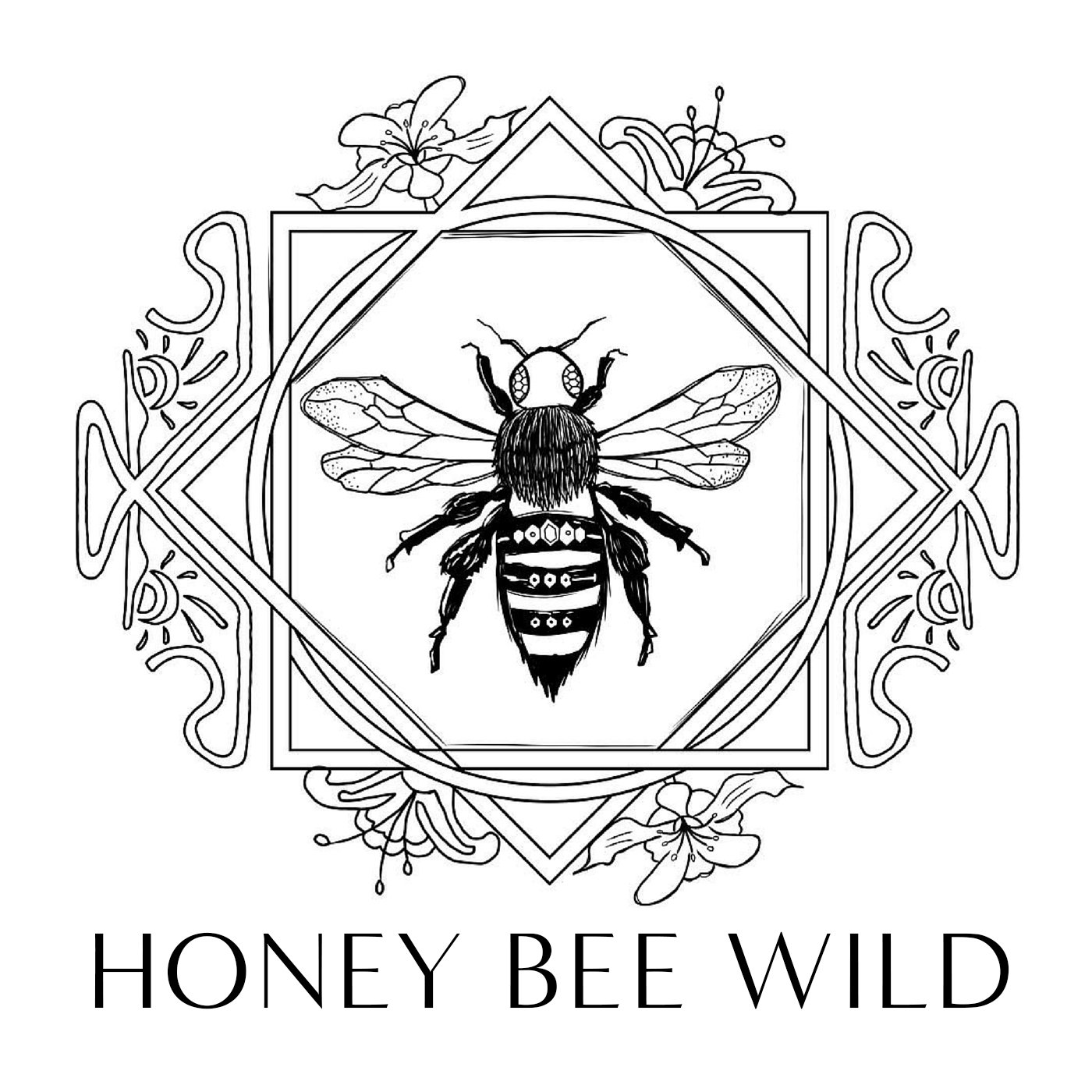

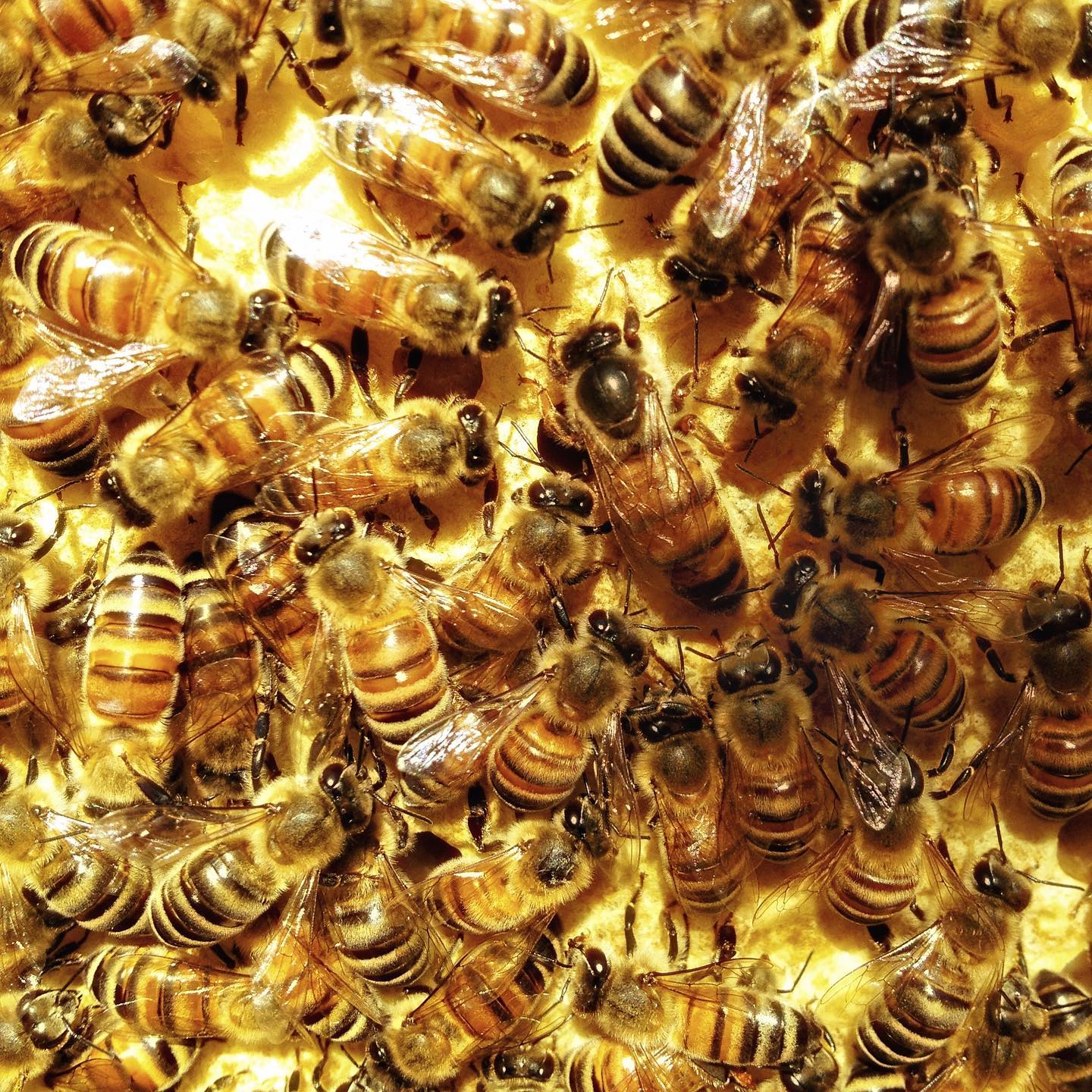



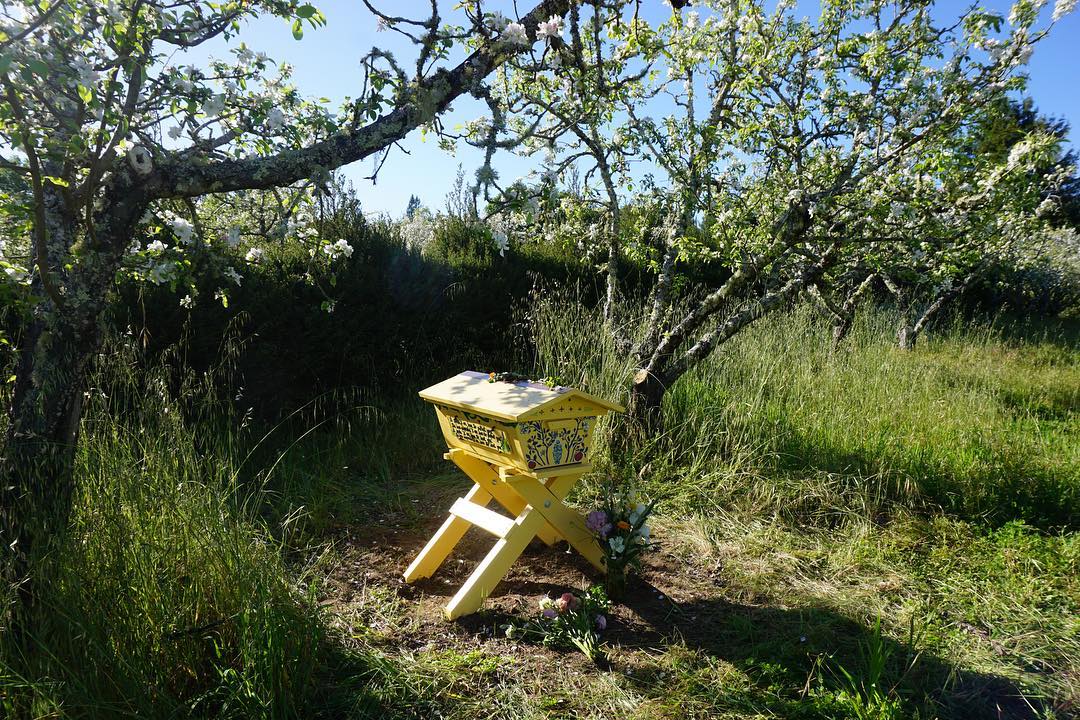

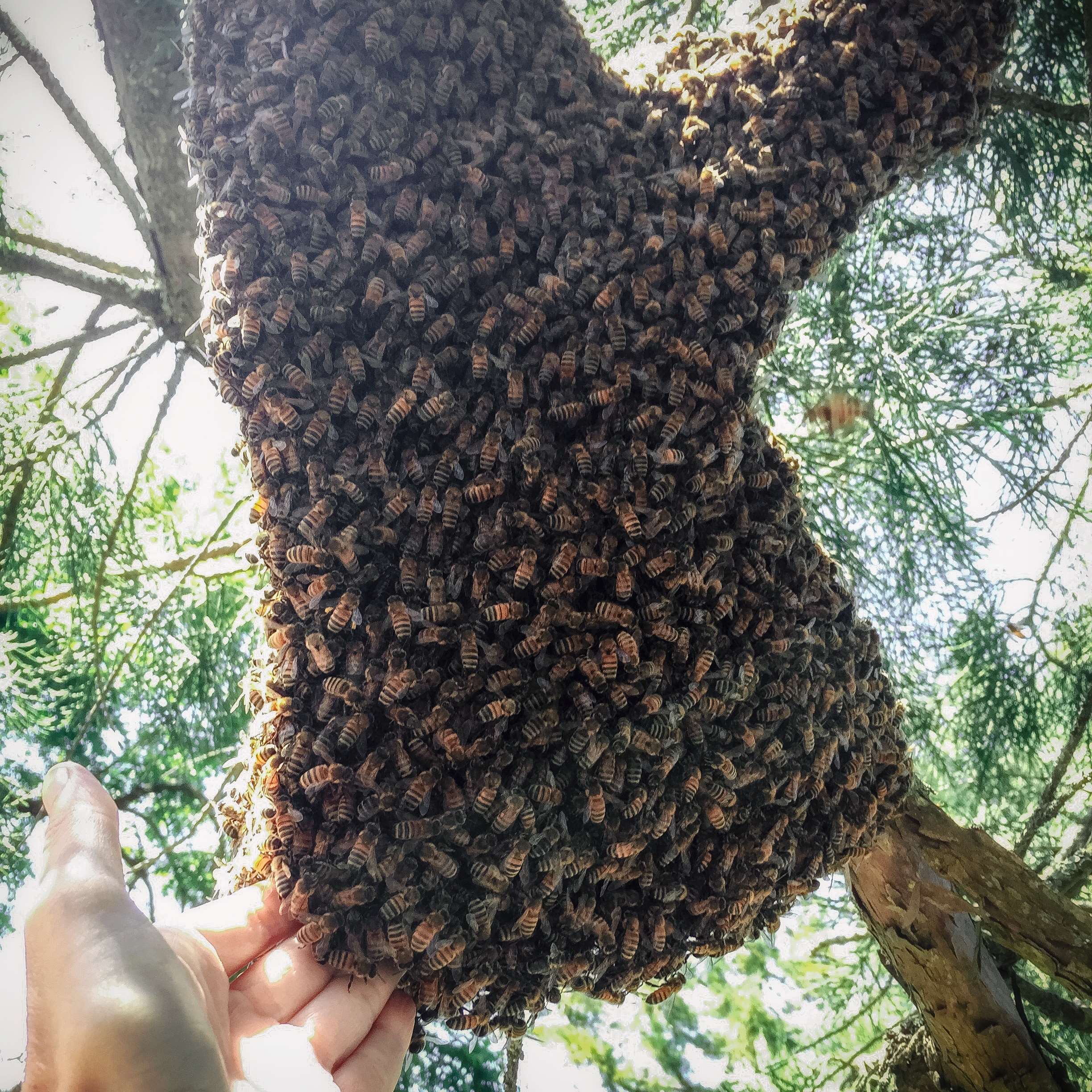


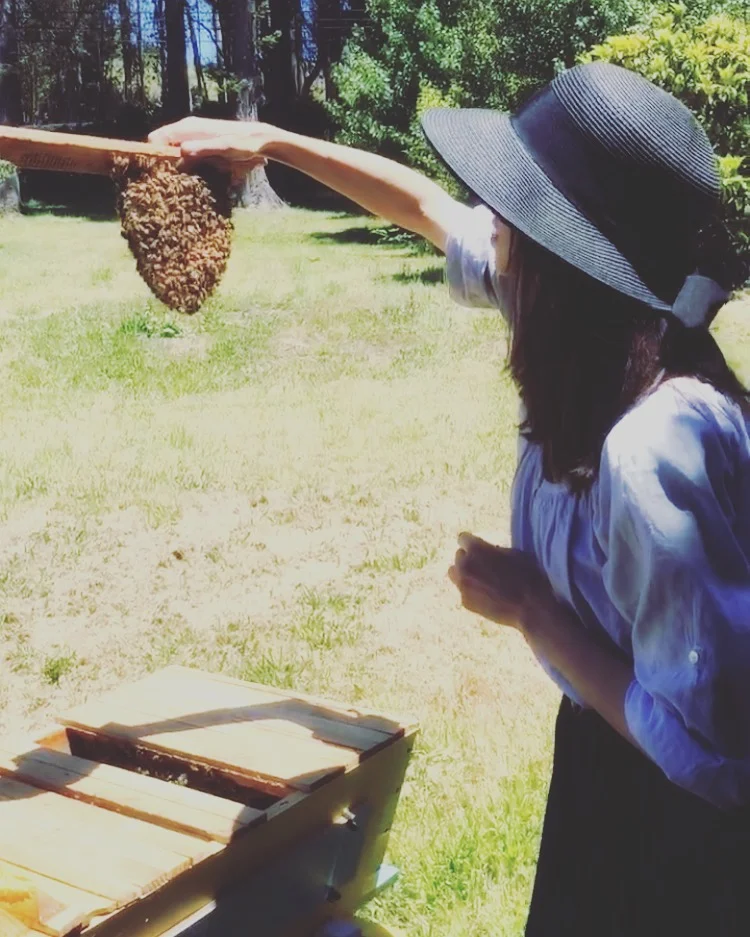
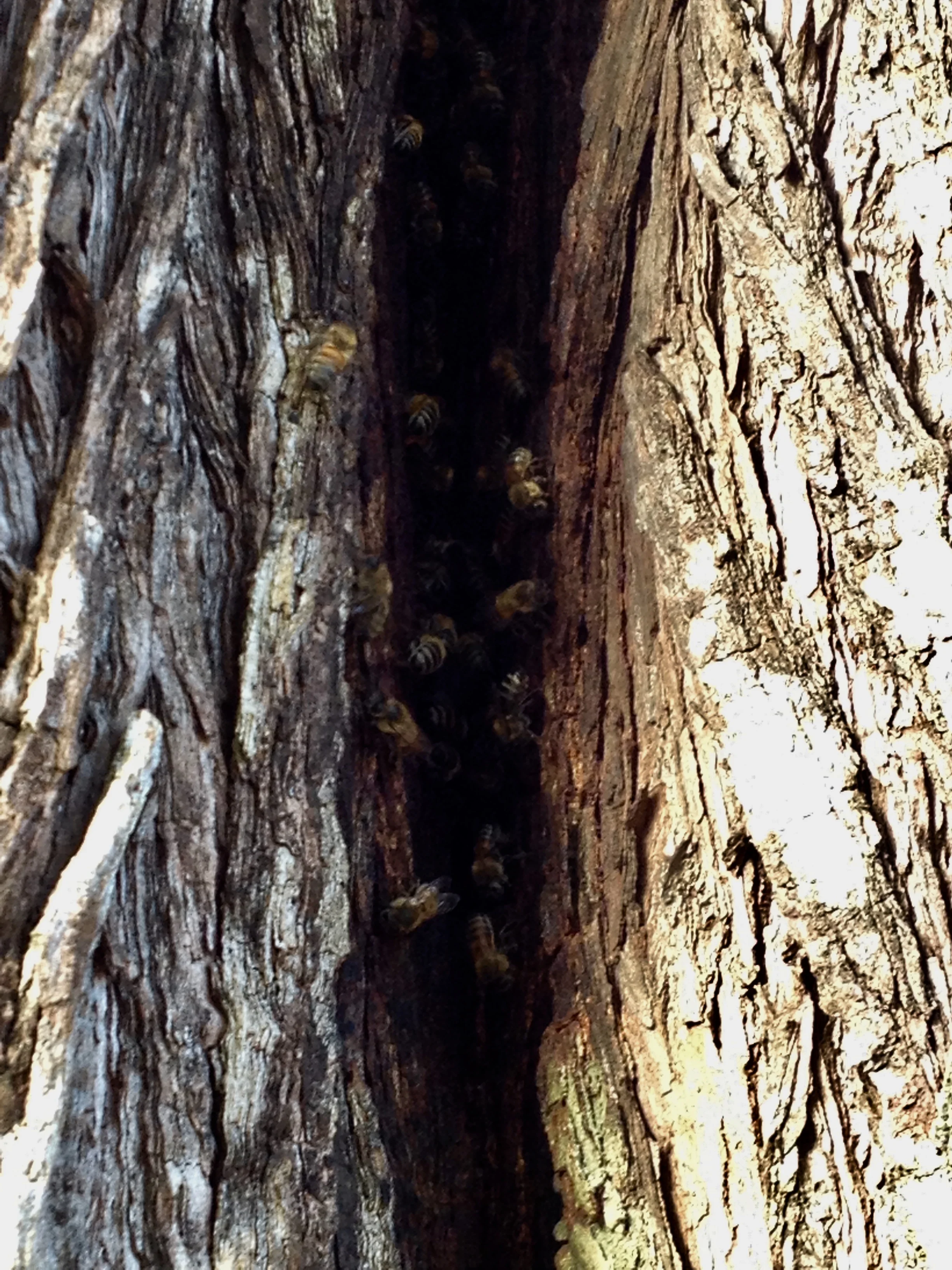







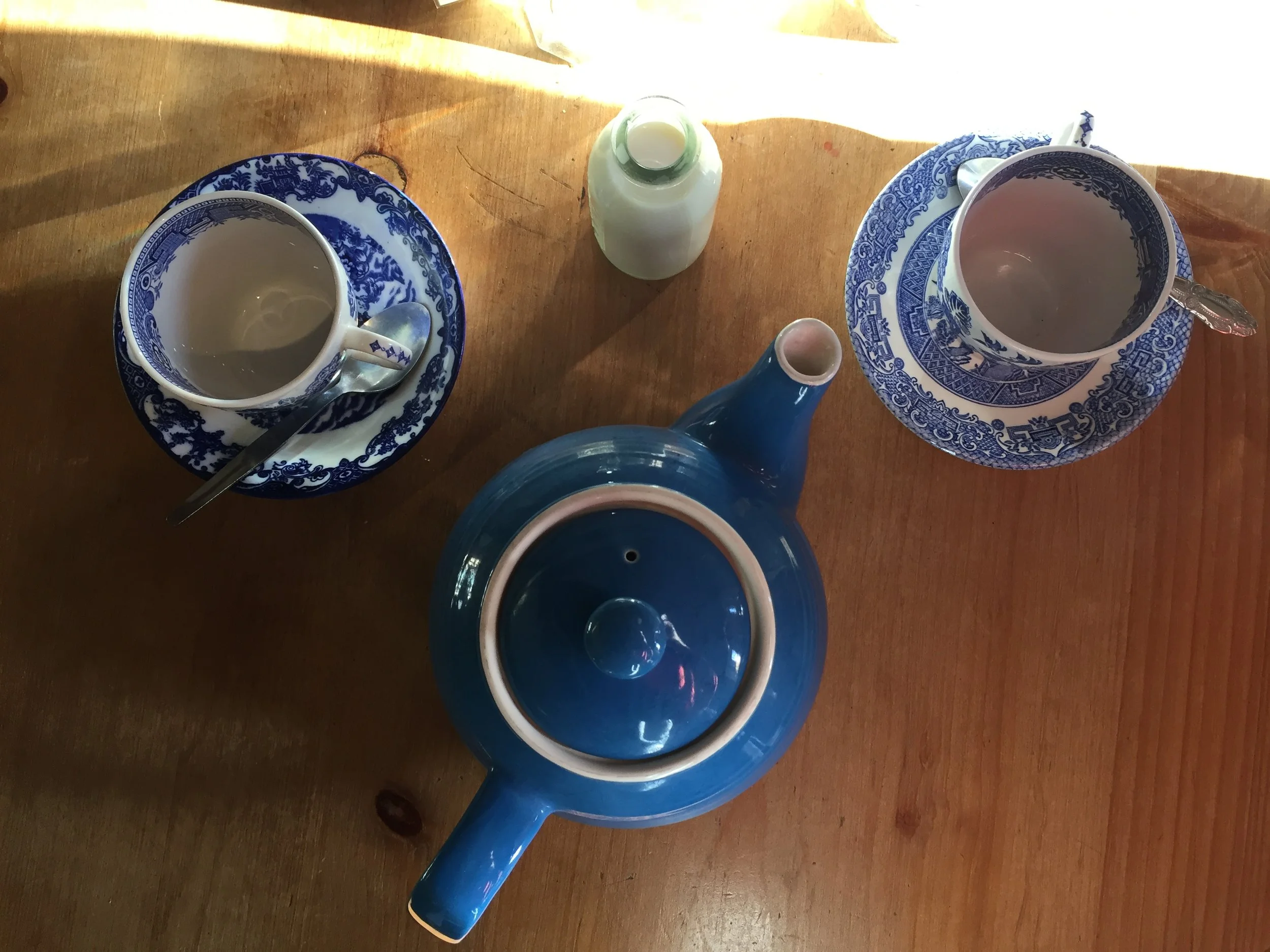

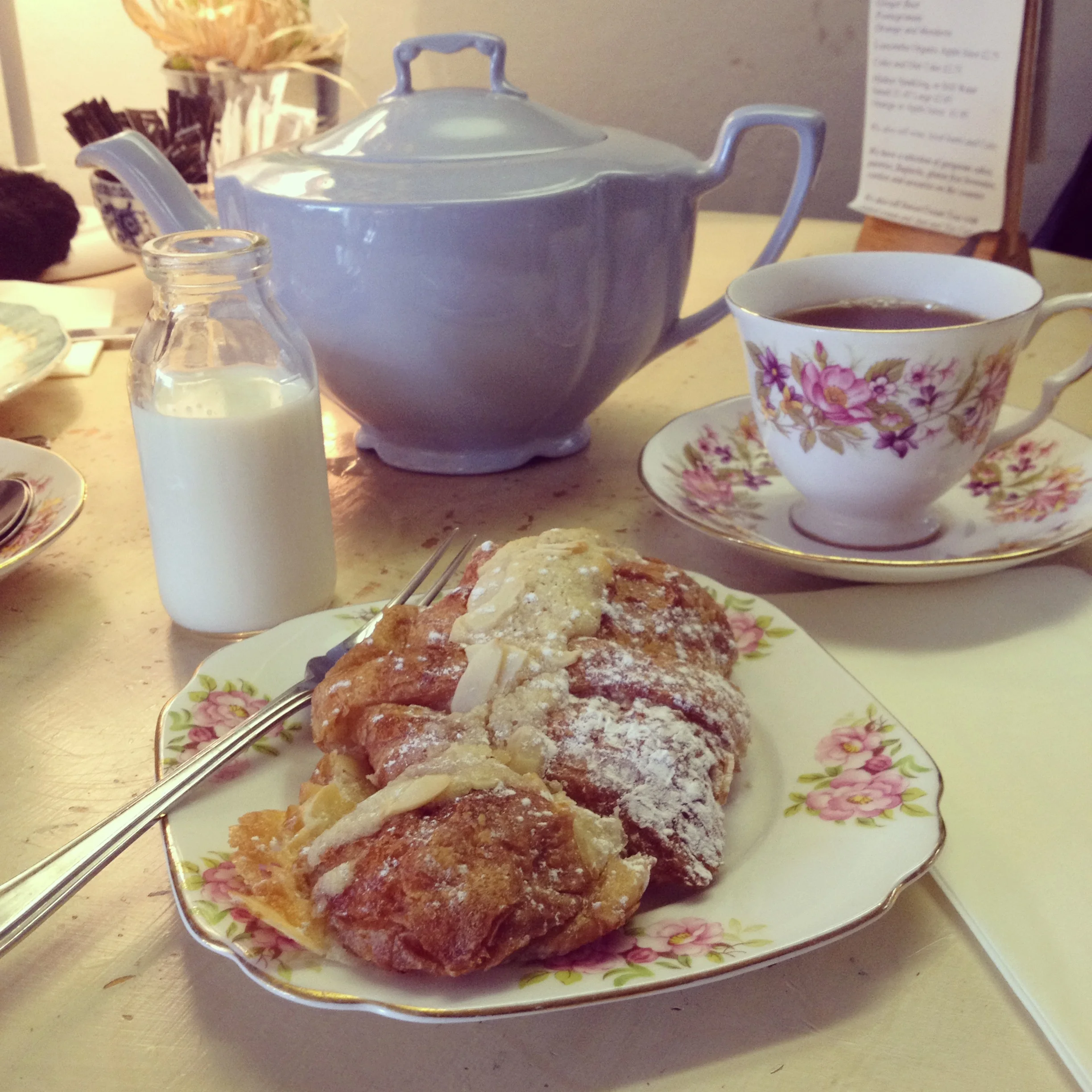


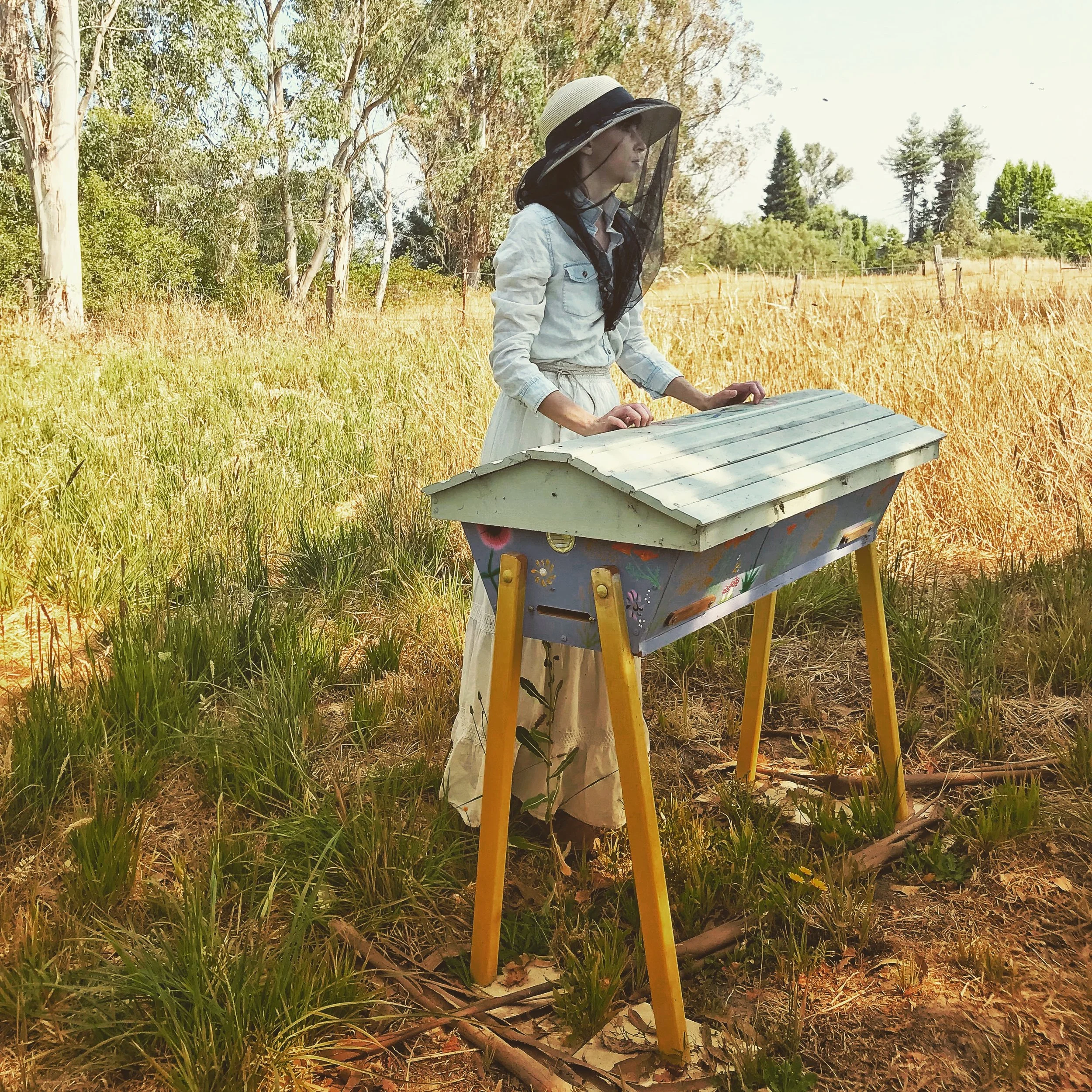





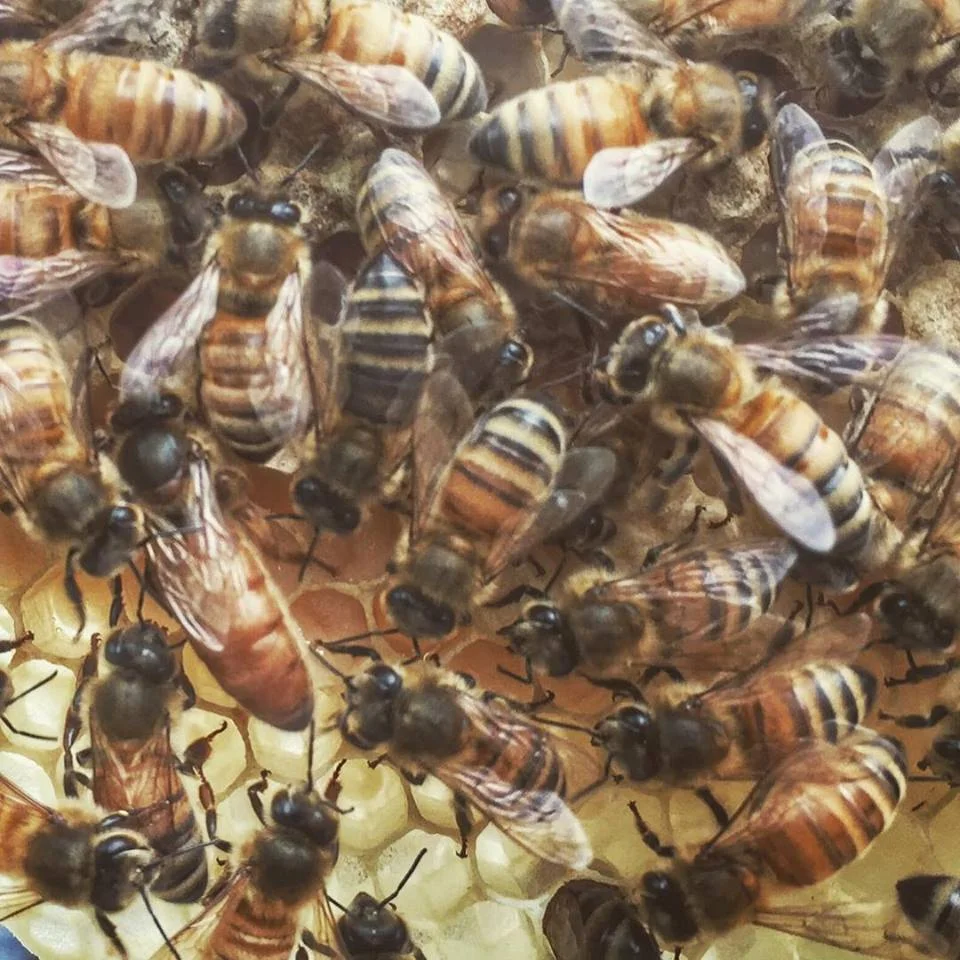












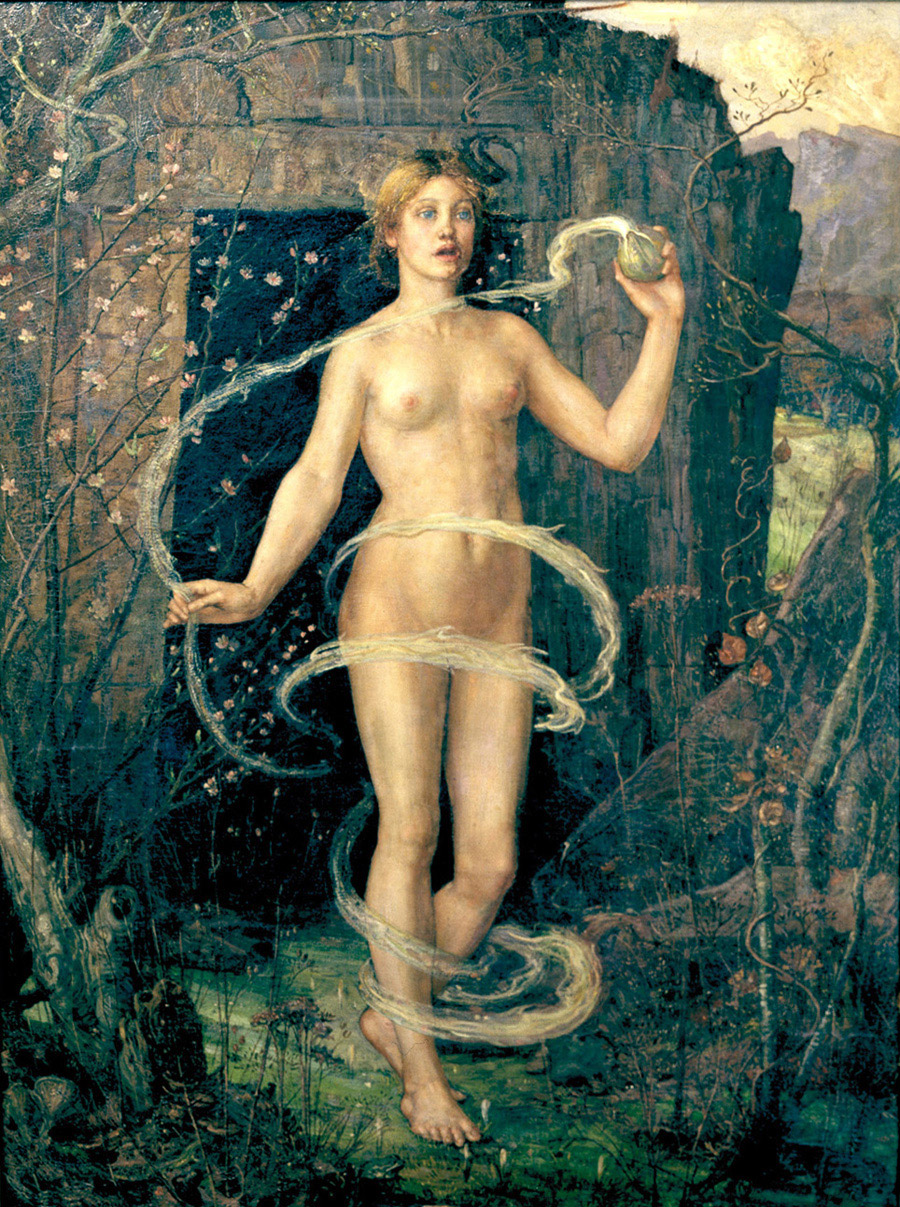


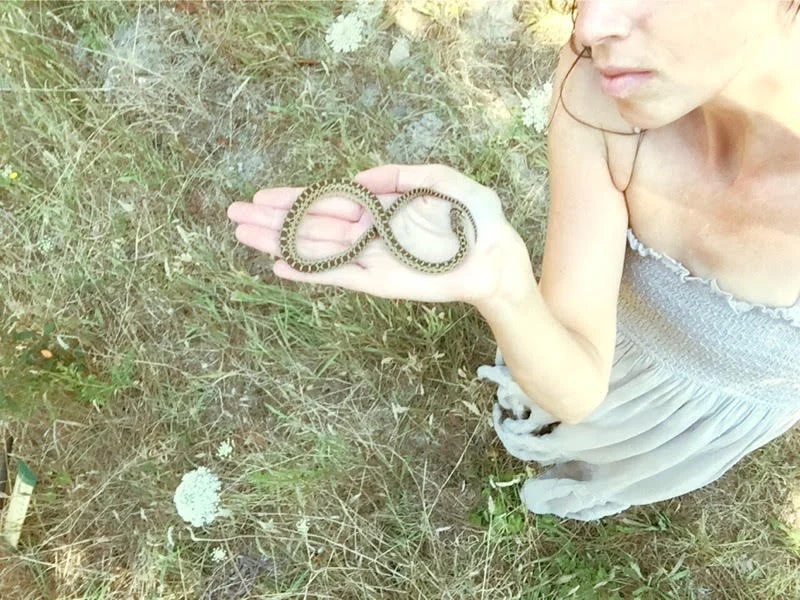
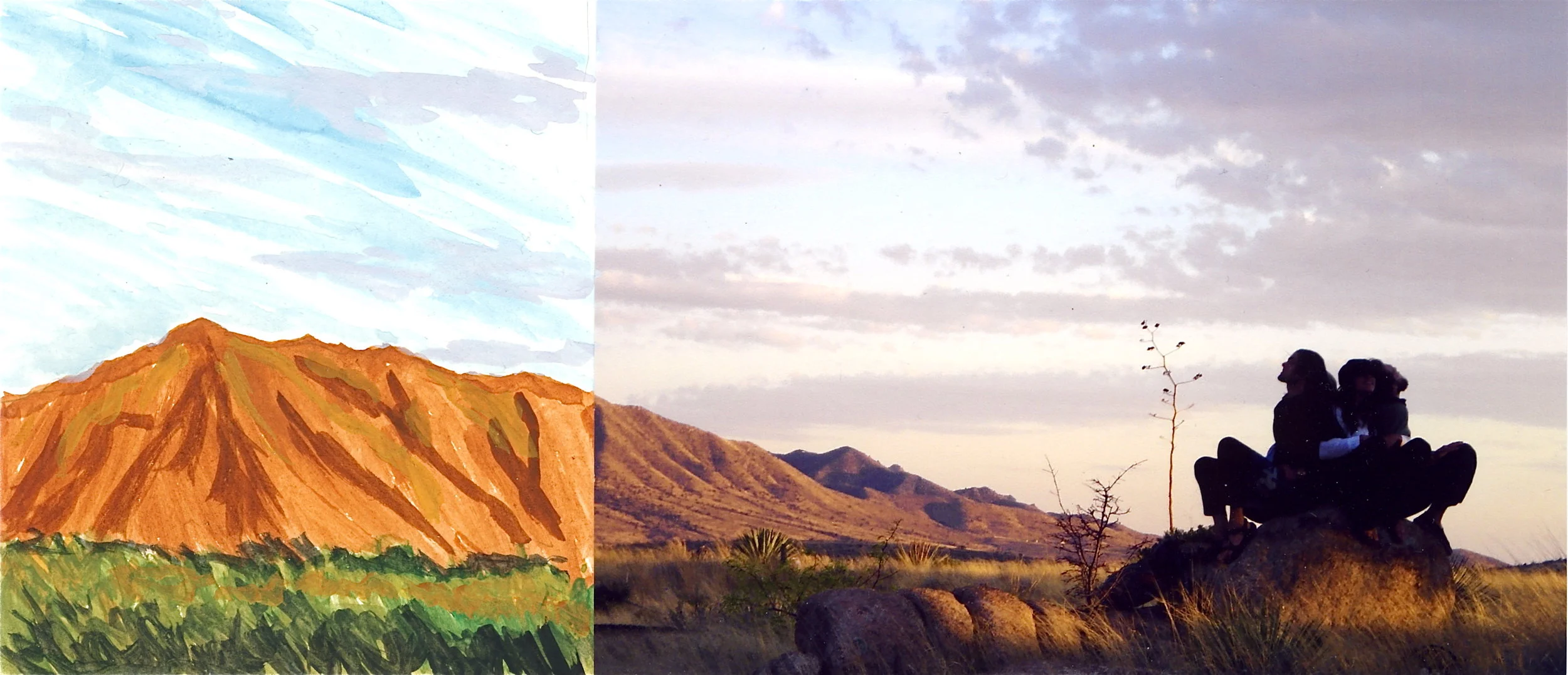

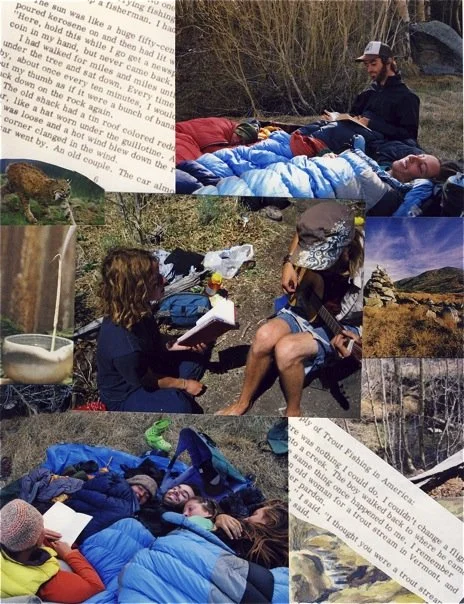
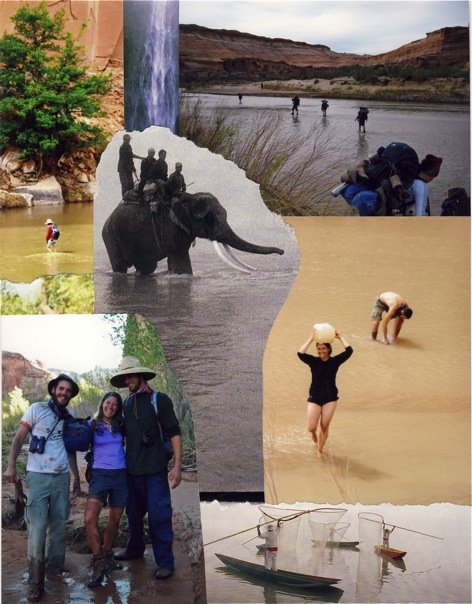
![John Collier [Public domain], via Wikimedia Commons](https://images.squarespace-cdn.com/content/v1/55f313bae4b029b54a71c646/1500593162038-1FU8NJ7WHQFS7YM2RYMU/AriellaDaly_Pythia)
